#with magic/forces that are equally if not MORE harmful
Text
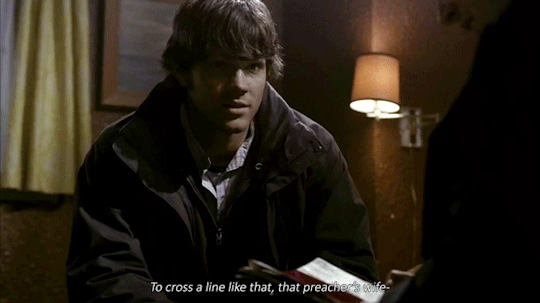

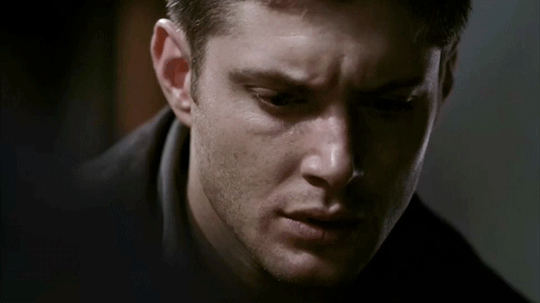
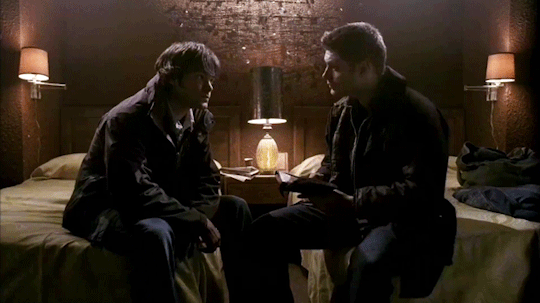
i...i feel like i'm going insane. the parallels, THE PARALLELS. WHY DO THEY ALWAYS PARALLEL THEM WITH ROMANTIC COUPLES IF NOT-
#i'm losing my mind#the way they literally did and will continue to do the exact same type of thing#with magic/forces that are equally if not MORE harmful#i need to go lie down#also WHY are their beds so close#eric kripke EXPLAIN#emma rewatches spn#1x12 faith#spn#wincest#samdean
526 notes
·
View notes
Text
Don't Look Back, Seisia! - By danryhan (8.5/10)
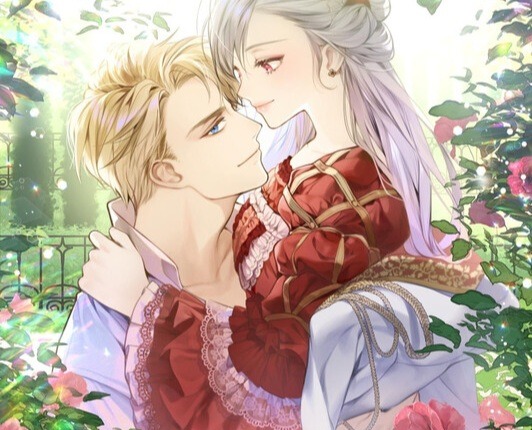
A poisonous love battle, featuring a ruthless Duke who acts kind and a merciful healer with a bad reputation. They are a loving and tender couple. Their honesty is the highest charm point in their relationship. The magical poison part of the story gets kind of pointlessly complicated, but it's good.
Seisia Lidyne is an adult woman who knows her worth. Not a crying child in need of saving. At least not at first. The forces working against her have way more influence than her. There's only so much she can do with no allies and knives in her back. Her father remarried. Her younger brother is an idiot sadist. Her father only cares about his male heir, and her stepmother only cares about her reputation.
It's a powder keg that explodes whenever Seisia Lidyne dares to step outside.

Her stepmother has been using her as a scapegoat.
Seisia Lidyne is an infamous hoe. Her poor brother was tormented by her, and her countless men. That's why he's such a nasty loser. It's all her fault. The rumors are both extravagant and ridiculous but Stepmother Lidyne puts YEARS of effort into the lies.
Seisia is left friendless with no marriage prospects.
She leaves the house.
Yep.
She also doesn't care about her father at all.
She walks out the door.

Time passes, and she finds a bloody man on the ground. Seisia has healing magic. Does this make her super special? No. It's pretty rare but healers have zero offensive capabilities. She never ever revealed her powers to anyone, because she knew her scummy father would use her gift to make money.
Dian is just another man who benefits from her services.
She settles down in a village. She uses her herbal knowledge and her magic to make a modest amount of money, for herself.
It's nobody else's business.
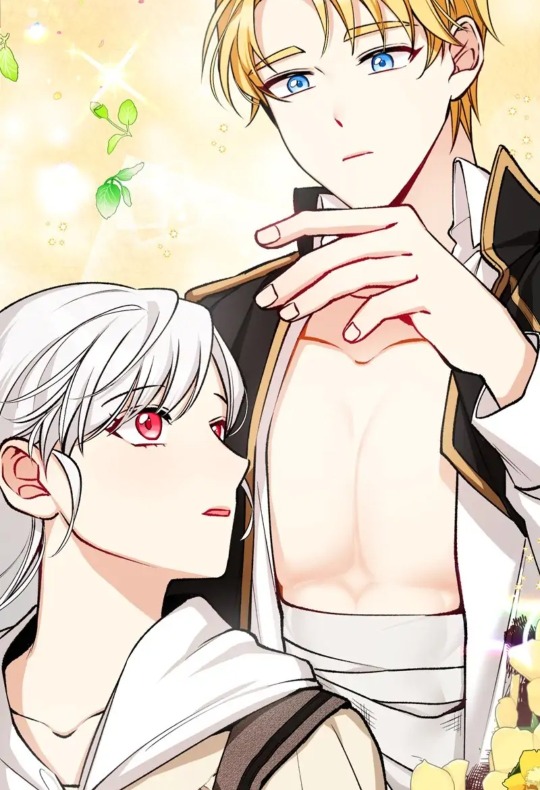
She quickly figures out he is noble. He's too educated. His clothes are too nice, and he was badly poisoned. His fingers were actually blue. Two plus two equals four. She helps him and sends him on his way.
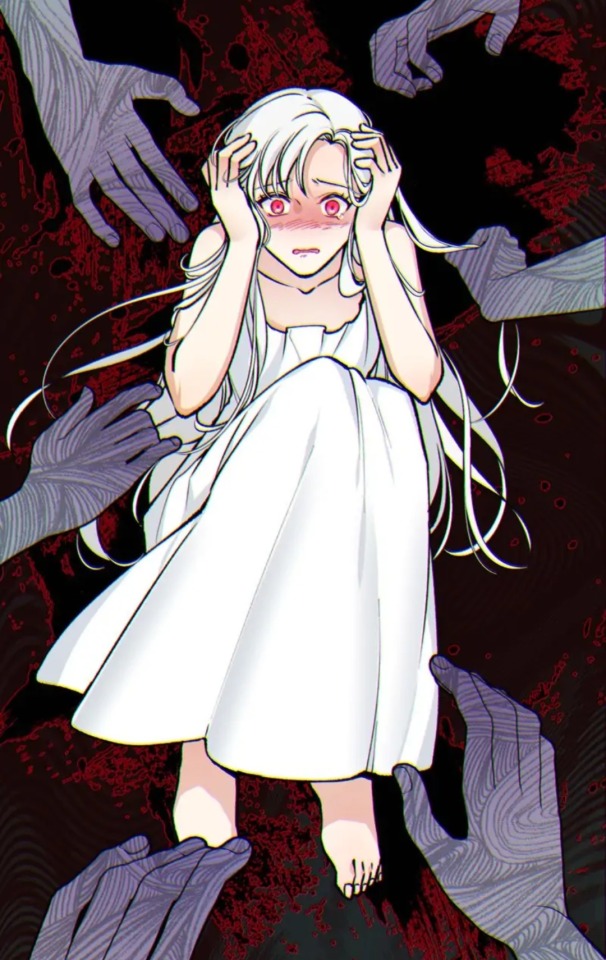
Seisia Lidyne has no one. No one that can be trusted. No one that she likes. Her rare hair and eye color makes her a target. The local villagers eventually realize she's a runaway noblewoman, and they want to turn her in for money. Her awful family is looking for her because they need their scapegoat.
She doesn't flirt with Dian, who is secretly a Duke with poisonous mind control magic.
He goes after her.
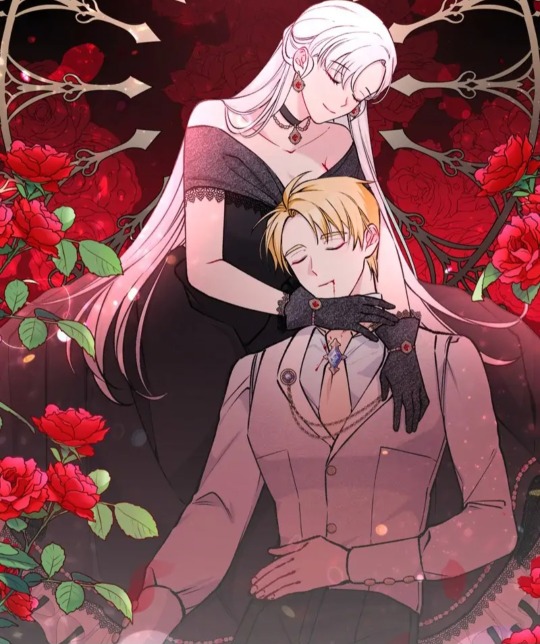
They are opposites in funny ways. He sticks around the village to watch her, and he notices that she's actually kind. Even when she doesn't need to be. All of the villagers gossip about her sordid past. They talk about hurting her. Selling her back to her abusers. Dian hears them all, and he wonders why she doesn't want revenge.
Dian is frustrated. His reputation is perfect. Everyone thinks he's kind, because of his manipulative magic. On the inside he's your average ruthless Duke. He's a master of poison too so...two plus two equals four...
He kills the men who want to harm her with a burning cloud of poison ash.
He thinks he wouldn't mind dying if she killed him.
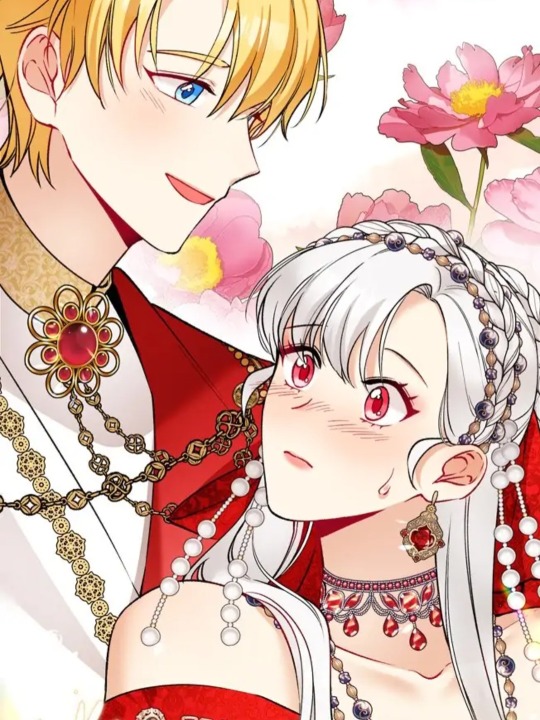
Dian is a strange kind of yandere. He's happy about it. He loves being in love. He resented his mother for most of his life, because she died in a stupid way.
His mother sacrificed herself for love, even though she had a six year old son that needed her. He didn't understand her.
Seisia is kidnapped by her family, and he doesn’t hesitate.
Now he does. His love for Seisia showed him the light. His mother could not give up on her first love, even after he betrayed her. That's normal and natural. He finally feels the same way about his own love.
It gives him closure, and he can finally let the past go.
Dian uses his status to save her and marry her. He is too powerful to refuse, and Seisia is happy about it. With no allies running from her father is a pipe dream, but she can trust Dian.

She also has no choice.
Dian listens to her woes. He accepts her past. Her flaws. Her fears. He promises her the world and he wants to give it to her.
Her brother has dark magic. That's why he gets so much special treatment. He tortured her with bugs. He helped spread the rumors about her sordid affairs.
He feels no remorse either.
Seisia is so happy to talk to someone she can trust.
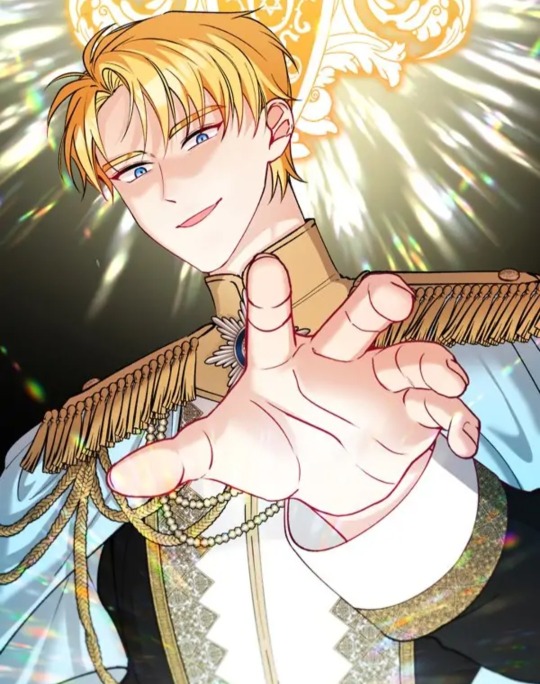
The "real" Dian isn't hidden away. He shares his true thoughts and feelings with her too. He has enemies he needs to dispose of. They already tried to kill him. The gloves are off.
Seisia pledges to help her husband, like a good wife.
He takes her to an endless field of flowers, where four families compete for power. Even though she's a healer it's a struggle for her to get used to all the poison in the air.
She tries her best. He helps her, and together they rise to the top of the flower battle.
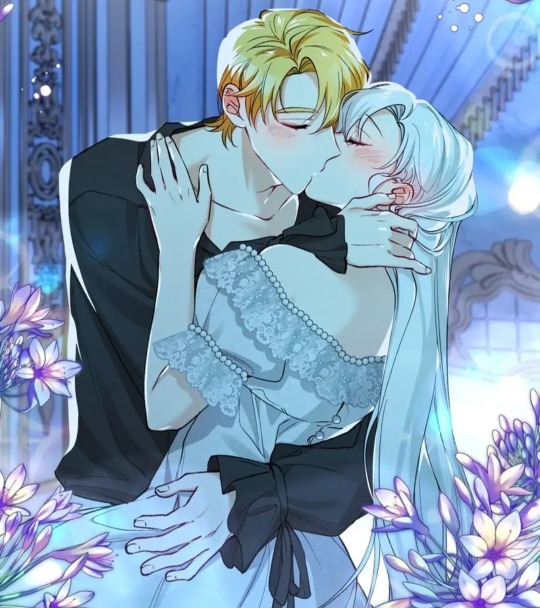
He gives her his blood, as proof of his love. His blood is the antidote. His mind control powers can no longer affect her. He has to trust her, and she has to feel the same way. When he says he can't live without her he really means it.
#yandere#male yandere#yandere male#yandere boy#recommendations#recs#rec#recommended#Don't Look Back#Seisia!
192 notes
·
View notes
Text
An AU where Celestia couldn't get to the elements of harmony in time for one reason or another and was forced to kill her sister after she turned into Nightmare Moon. Celestia was distraught, her little ponies cheering just making it so much worse. She becomes cold and distant from her subjects. She grows overwhelmingly lonely and she decides to free Discord under certain conditions. The basics being, He gets his chaos as long as no one gets hurt, and both of them get companionship and rule together as equals. He decides to humor her at first planning on rebelling at any opportunity, but really understanding the situation when finding Luna's burial site and being told what happened. The two rule Equestria for over a thousand years together, growing extremely close. On the anniversary of Luna's death, a purple unicorn joins Celestia's school of magic, one that uncannily reminds Celestia of her sister. And one with more magic than someone her age should have.
Optional additions-
Celestia is intimidating and feared by others do to her more serious, colder, and reclusive personality.
Discord has become the public figure. His chaos has surprisingly become well loved, why did he ever use it for harm?
Twilight Sparkle is the reincarnation of Luna, as a result she has problems with leftovers of Nightmare Moons dark magic. She is being trained by both Celestia and Discord to help control this. Her magic surge caused an entire 24 hours of nighttime, and she hatched a dragon egg. Spike looks very similar to a ursa minor, and while not as big as a ursa minor is rather big for a baby dragon.
Celestia might as well be Twilight's mother, Discord is like her weird uncle.
Pinkie Pie becomes Discords student for similar reasons Twilight Sparkle becomes both his and Celestia's. Hard to control magic, in Pinkie Pies case more chaos magic than any mortal pony has ever had. Pinkie Pie and Twilight Sparkle become close childhood friends.
#drawing prompt#writing prompt#alternate universe#heavily alternate universe#my little pony friendship is magic#mlp#mlp au#mlp alternate universe#mlp fim#mlp twilight sparkle#mlp celestia#mlp princess celestia#mlp fim celestia#mlp fim discord#discord mlp#mlp discord#mlp princess luna#mlp luna#mlp nightmare moon#nightmare moon#twilight sparkle#twilight sparkle mlp#mlp spike the dragon#spike the dragon#mlp pinkie pie#pinkie pie#long post#long prompt
213 notes
·
View notes
Text
On Daenerys, Colonisation and Race Discourse within the ASOIAF Fandom
This has been on my mind for a good long while and honestly, as much as I would like to leave discourse in the pits, it has been bugging me intermittently over the past few weeks.
Far too many of you get on here and call people who like the fictional dragon-riding family, neo-Nazis and that sentiment is so prevalent, that white people feel comfortable telling me a black woman that I am a neo-Nazi for rooting for Daenerys Targaryen. I am upholding neo-Nazi power fantasies for wanting to see a little girl live at the end of a story. I am a neo-Nazi for wanting to see the rape survivor have the family she aches for and children with the man (or men) she loves.
Then, those same people go on spiels about how the systemic erasure of those who sing the song of the earth and other old races is not colonialism. That their removal from their home is not displacement but an agreement between two equal parties. The fact that the only place where those who sing the song of the earth exist in the present timeline is north of the wall, surrounded by the bones of their dead, is not a travesty. That the expulsion of the old races from their home isn't that bad and should not be condemned.
Instead, people argue, completely seriously, that the harm that the First Men and Andals have caused is centuries in the past, so essentially the slate has been wiped clean. The logical leaps that are required to arrive at such a boneheaded conclusion are truly mind-boggling, and those who make such arguments are not good people.
I am unsure how one could read those books and come away with the impression that the old races do not mourn the loss of their home. I am unsure how one could read The Last of the Giants[1] and Ygritte’s reaction to both the song and Jon’s dismissal of the ethnic cleansing of the giants then believe that the old races and the free folk have moved past their displacement.
In Westeros, from the Wall to the broken arm of Dorne, they all speak one language despite the fact they are all different ethnicities and they all landed on the shores at different times. That is not the case in Essos, we have been introduced to at least six languages and in A Dance with Dragons, Tyrion notes that the Valyrian spoken in the Free Cities has evolved into nine distinct dialects, and they are well on their way to becoming different languages.
How would a continent as large and diverse as Westeros maintain its hegemony over the people if not for forced assimilation, discriminatory practices and violence? The brutal repression required to keep one house in power for thousands of years is nothing to sniff at. The suppression required to keep the vast majority of Westeros worshipping one (or seven) gods. The systems in place ensure that language does not grow or evolve amongst the highborns at least.
Centuries before Aegon's Landing the maesters were the definitive educational authority and even now centuries after, nothing has changed. The grey rats still decide who learns what and when they learn it. There's one in every highborn home, all correspondence passes through them, they are the healers and the councillors.
The circular logic gets even more blockheaded when you factor in the fact that Daenerys is far from the only white character in the books. She is not the only character who wishes for home. She is not the only character who draws strength from her ancestors, her bloodline and her magical creatures.
Cersei draws strength from her family’s iconography, and the Stark children (Jon included) all draw strength from their direwolves, their home and their blood. Sansa, Arya and Bran wish to return home and their home was built on the indiscriminate murder and displacement of the indigenous peoples. Their home is built on centuries of rape, murder, exclusionary practices and sexual slavery.
However, if we give the nonsensical argument that time erases crimes air; the Starks, Lannisters and Tullys are warring to settle personal grievances in the present timeline. As a consequence of that war, thousands (a modest guesstimate) of small folk, minor nobles and even some major ones have been raped, tortured, maimed and killed.
Despite all this, no one writes meta after meta about how Sansa and her siblings must surely die for justice to be had for those who sing the song of the earth, the free folk, the giants and all the old races that fled beyond the wall.
People write meta about Cersei and how she must die, but those are typically more misogynistic nature. They typically argue that she must die not for the “crime” of being Lannister, but for the “crime” of being Cersei and “ruining” Jamie.
I would not mind criticisms of Dany and her peace-focused approach to ending slavery because the approach is naïve and she gives the slavers far too much ground. However, she is learning, growing and self-critiquing. At the end of A Dance with Dragons, she has decided to embrace fire and blood, her knight is breaking the false peace which is a necessary step forward.
What I find offensive is people saying that she should have planned better before she abolished slavery. And that the death, violence, and sickness that arises from her quest to eradicate slavery is somehow worse than the death, violence, and sickness that already existed in Slaver’s Bay.
This argument often downplays the horrific conditions and suffering that exist(ed) under the slave system in Slaver's Bay. Such arguments are often in poor taste and prioritise the lives and comforts of the slavers more than the people they have enslaved.
I would not mind criticisms of Dany if people applied that same critique even-handedly. The same people who believe that Jon and Bran have done much to rectify the evil that their ancestors perpetuated believe that Dany has not done anything to right the wrongs of her ethnic kin. They praise them for the non-existent steps that they have taken, but in the same breath, they condemn Dany for not being able to immediately end the plague that is slavery.
It is perfectly alright to not like fictional characters, no law requires you to like certain fictional characters over others. However, what is not right is making broad accusations about those who do, it is beyond the pale. It is disgusting, and annoying, and trivialises real-world issues to score cheap points against fictional characters.
Equating the survival of a teenage survivor to the restoration of a fascist house or neo-Nazi power fantasy when such designations do not exist in the world of ice and fire is strange behaviour. Saying that the teenage survivor will eventually be manipulated and raped (again) before ending up dead on her manipulator's blade is also strange behaviour.
Dismissing the horrors of colonialism, especially when the text shows you that the involved parties are still affected by it, is not normal and often veers into real-world imperialism apologia. While criticism and analysis of characters and their actions are valid and even encouraged, it is essential that we do not resort to sweeping generalisations about other people and that we keep criticisms of characters grounded in the text.
[1]
Ooooooh, I am the last of the giants, my people are gone from the earth.
The last of the great mountain giants, who ruled all the world at my birth
Oh, the smallfolk have stolen my forests, they’ve stolen my rivers and hills.
And they’ve built a great wall through my valleys, and fished all the fish from my rills
In stone halls they burn their great fires, in stone halls they forge their sharp spears.
Whilst I walk alone in the mountains, with no true companion but tears.
They hunt me with dogs in the daylight, they hunt me with torches by night.
For these men who are small can never stand tall, whilst giants still walk in the light.
Oooooooh, I am the LAST of the giants, so learn well the words of my song.
For when I am gone the singing will fade, and the silence shall last long and long.
#I do not like most of y’all.#Do not call people of colour you do not know neonazis to win points against a fictional character.#It is not my fault that most of your faves are boring and do nothing to drive the plot forward#take it up with george rr martin and stop villifying dany and her (mid) family.#The insistence that we must mind fandom etiqutte is tired as hell too especially because people use it as silencing tools.#“Yes I called you a neonazi but you are the real weirdo for finding my post so really it’s on you that you saw that.”#that’s how y’all sound.#If I see another post that equates enjoying dany to being a neonazi#i will make it everybodys problem.#Took a long break from this fandom because the rancid takes were overshadowing the good takes#and i’ve been back less than a year and the takes are even more rancid than before.#hotd opened an evil door that should’ve remained shut.#Cause why the fuck are there criston cole apologists? Why are there aemond and aegon ii apologists? It is a dark world we live in.#put the last giant at the bottom for my homies who have not read the books which if we're speaking real is more than half of y'all#now that i have gotten this out of my system#it is time to get back to demon slayer#daenerys targaryen#asoiaf#asoiaf thoughts#asoiaf nonsense#if you saw the typos in the first version#no you didn't#edited this to add some thoughts I originally put in the tags because I felt it worked better there.
129 notes
·
View notes
Text
Hekate: The Warrior of Light, Bringer of Justice, and Guardian of the Vulnerable
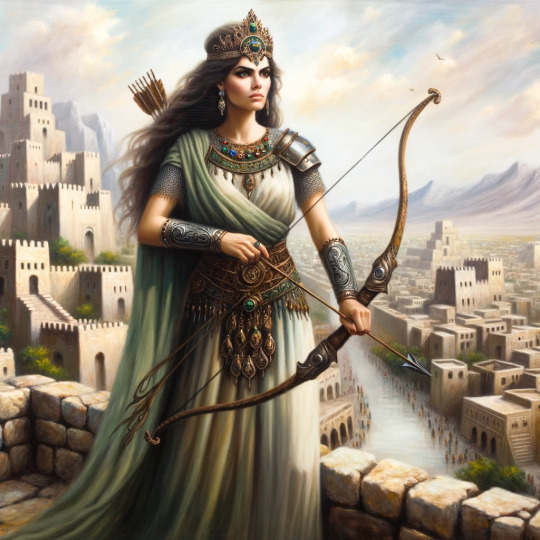
Hekate, a multifaceted goddess often associated with magic, crossroads, and lunar mysteries, has a lesser-known but equally compelling role as a warrior. This article delves into this overlooked aspect, exploring her participation in mythological battles, her symbolic torches of wisdom and justice, and her enduring role as a protector of the vulnerable.
The Warrior in Mythological Context
In Greek mythology, Hekate's warrior aspect comes to the forefront during the Gigantomachia, the epic War of the Giants. Allying herself with the Olympian gods, she took up arms against the Giants, formidable beings birthed by Gaia, the Earth Mother, as a form of cosmic retribution. Hekate's nemesis in this battle was the Giant Klytios.
According to the Greek mythographer Pseudo-Apollodorus, Hekate vanquished Klytios using firebrands. This act was not merely a testament to her martial capabilities but also symbolized her role as a bringer of enlightenment—both in the literal and metaphorical sense.
The Symbolism of Her Torches
Hekate's twin torches are not just instruments of war; they are potent symbols of wisdom, knowledge, and the mysterious realms of life. In a world where the notion of a singular 'truth' can lead to division and strife, Hekate's torches guide us toward a more nuanced understanding of justice. They illuminate the path to personal responsibility and individual truth, dispelling the shadows of ignorance, intolerance, and bigotry.
Hekate as a Bringer of Justice
In her role as a warrior, Hekate also embodies the concept of justice. Her torches serve as beacons that light up the dark corners of human existence, revealing injustices and inequalities. By guiding us toward wisdom and personal responsibility, she empowers us to become warriors for justice in our own right.
The Protector of the Marginalized
While Hekate may not wear traditional armor or carry a sword, her torches offer a unique form of protection. They serve as guiding lights for those navigating the labyrinthine complexities of life, particularly for those who are marginalized or vulnerable. In this role, Hekate emerges as a guardian, her radiant light serving as a bulwark against the forces that seek to exploit or harm the weak.
Relevance in the Modern World
In today's volatile landscape, where fear, mistrust, and polarization are increasingly prevalent, the symbolism and teachings of Hekate are profoundly relevant. Her torches remind us that wisdom, justice, and compassion are potent weapons against the darkness that threatens to consume our world. They inspire us to stand up for what is right, to protect those who cannot protect themselves, and to seek wisdom as a path to a more just and equitable society.
Sources: https://knotmagick101.wordpress.com/2015/11/21/hekate-as-a-warrior/
99 notes
·
View notes
Text
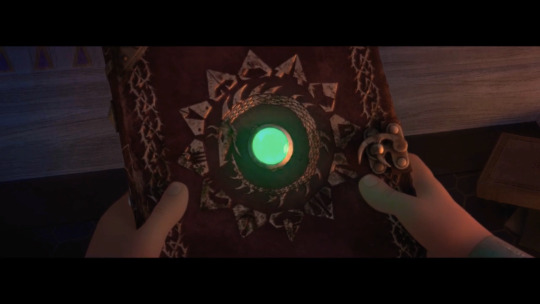
The main defense Magnifico simps use for their pwecious babygirl, that isn't being a dick to seventeen year old teenager, is this Book of Spells. This defense however fails to explain his already negative traits even before he used the book, or why he even has it in the first place.
So the book contains powerful magic that any magic user can use to amplify their own powers. However, the book's contents contain spells that are used for evil purposes. It even informs the reader that once one embraces dark magic, they commit to it.
Because we are never given any info on how or when he got the book in his possession, we can cue in the fact that Magnifico studied magic to become a powerful sorcerer, so he has access to anything that is magic while training and may have obtained the book after learning of it. He already knew it's contents are dangerous, suggesting he learned its dark purpose, however with him wanting to make himself even more powerful, he still kept it within easy access.
Now the catalyst of him embracing its dark contents was resulted by Star arriving to Rosas. Ever the paranoid, he feared that a being more powerful than him came to undone what he built. He considers using the book out of rage over himself for not being powerful enough or not knowing enough to know the cause of Star's light. Had it not been for Amaya to console him and suggesting him to look for his subjects for guidance.
The second catalyst of him accepting the book's contents and magic is when his own subjects fail to give what he wanted, an easy answer to who caused the light so he can snuff it out. Instead, they start questioning him about the system he created. To him, he sees this as an act of ungratefulness.
The third and final catalyst is when he punishes Asha for "stealing" from him by crushing her mother's wish right before them. He finds out that crushing the wishes amplifies his magic. At this point, he embraces dark magic completely and uses books contents to create a scepter so he can use to it absorb star and make himself even more powerful.
Magnifico was already a narcissist by the time he appointed himself king of Rosas, creating the wish system so that his subjects praise him with false promises. When he learns that a magical being much more powerful than him arrives, his paranoia of losing his crown takes over him as he resorts to using dark magic so that he can snuff out this threat and remain in power. When he founds out what the wishes can do, he fully abandons his own wish system entirely and focuses on getting Star so he can use their powers.
His magic backfiring and absorbing him into his own staff may are consequences of using a spell to absorb a being of magic. This bit is very hypothetical, so hear me out with a grain of salt. The kingdom of Rosas wishing for Star amplifies Star to escape the staff, as Star and Magnifico are already equal in terms of magic by the climax, Star just doesn't want to use their's to harm anyone. So the staff, programmed to do what it's made for, absorb Magnifico because he had powerful magic. With the staff made to make sure the being its sealed in is unable to escape, it's highly probable that any being with magic cannot use it once they're sealed.
Another bit that is somewhat related is Amaya's denial over her husband embracing dark magic and has hopes that there is a way for them to bring him back. She says that it has a hold on him, suggesting that she thinks the book is responsible for her husband's use of it. Once she learns that they cannot undo Magnifico's own actions, she forces herself to accept that her husband has embraced powers and ambition over her and their people.
Another minor detail for Amaya's underrated ark and also being unintentional meta for Magnifico simps being in denial that their blorbo is evil and blames the book for his own actions. And scapegoating Asha.
#disney wish#wish 2023#wish movie#wish#king magnifico#disney magnifico#magnifico#queen amaya#wish amaya#wish queen amaya#wish magnifico
36 notes
·
View notes
Note
In your opinion who is most likely to be scary Yandere for you? Like what is the most terrifying Yandere that you are GLAD that you are not their obsessions?
Oh, this is an interesting question! I’m happy to answer. There’s four in total to go over here- and thank you for asking!
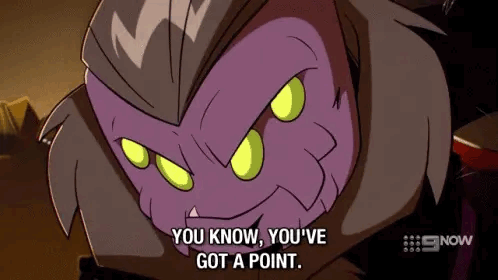
I’ve only written twice for Huntsman, (mostly because I can’t find gifs for him) but I genuinely find him to be the scariest Lego Monkie Kid yandere. His obsession with you is based almost entirely around your skills, either as a hunter equal to him or as prey worthy of pursuit. The love present between is mutual, in a way- grindstones alike, whetting your skills in lethal pursuit and escape. You invite his predation, then struggle to escape it. It’s a perpetual, equal race to the mastery of his and your respective skills, hunting and escaping.
If Huntsman does catch you, he’ll likely end with him stuffing your body as a dinner table prop or having you for dinner outright. At least he’s got a nice recipe for you.
Then again, you might just do the same to him if you win.
Either way, neither of you will ever forget the impact that the other has made on you.
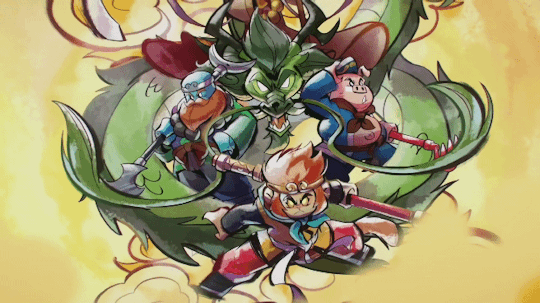
Unlike Huntsman above, Tang Sanzang (also criminally few gifs) isn’t on this list because his intention is to harm you, or because he’s willing to follow through with actual butchery of your physical being-
No, it’s because he will win. There’s no escape from the pious pilgrim. He finds you, snatches you up, snaps a golden circlet or two onto your body somewhere, then forces you along on his journey, intending to make something better of you.
And after enough tightening sutras and lectures and escape attempts that are thwarted by his loyal disciples… you break. Confidence, stubbornness and rebellion can only last so long before you are left wearied and in need of comfort.
One moment you’re sniffling and clutching at the bands that cover your wrists, the skin long worn raw from repeated punishments. You stand on shaky feet with your head bowed, trying to stay strong in your quest to abandon this long, arduous journey.
The next moment you’ve got your head in his lap, sobbing your eyes out into the pants of his cossack. You apologize for every last thing you can think of, desperate for his kind touch and forgiveness. Sanzang offers you both in plentitude, his hands stroking down your hair and rubbing at the bands that have tortured your wrists for so long.
He’ll hold you close the rest of the day and then all through the night, his gentle fingers patching your wounds with herbal paste and untangling the knots in your hair.
And you’ll wonder why you ever wanted to leave in the first place.

Power, wealth, status. Big Mama has all three in abundance. She’s got a collection of mystic baubles and magical curios as far as the eye can see. Dozens, perhaps hundreds, of servants and slaves gladiators.
And she’s very, very, cunning.
The webs she weaves to deceive are more than tangible- they’re snared to achieve a position where you’re forced into submission.
Big Mama will have you.
With an arcane bibelot to tamper with your mind and leave you unsettled. Using a rather disposable servant to stage a rescue that leaves you indebted. Sending a Yōkai to demolish your workplace and leave you in desperate need of her ‘generous’ offer to sign you on to her staff.
By brute, overwhelming force, if she must personally collect you. If you fight her too much here, she’ll leave you strung up from the ceiling with web over your eyes and ears to deprive you of your senses. Only for a while, of course. It wouldn’t do to damage her new little darling too much, even if her method of procural leaves you bruised and battered.
No matter the manner, she will have you.
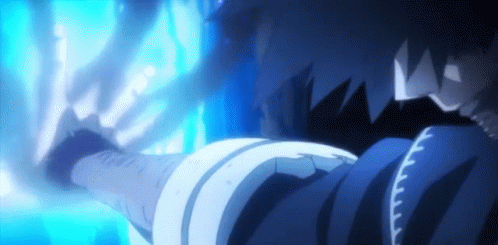
(I held off on writing for this guy for the longest time, because I wasn’t sure if my followers would enjoy darker content. But I got the go ahead!)
Dabi’s a monster. He’s a man who prioritizes the downfall of his father above all else, and he’s a mile-long sadistic streak to pair with it.
He enjoys hurting people. Innocent people, to boot. No regard for their friends, for their families. No regard for the snuffing of precious, fragile life.
His mind is fractured from the strain and heartbreak of being cast aside by his father, replaced by his brother, and forgotten by his family in short turn.
You’re a outlet for Dabi, not someone he loves.
I don’t think he’s capable of love anymore.
You scream when his flaming fingers jab deep into your skin. You cry when his fingernail cut into your skin and ignite. He grabs big fistfuls of your hair and burns them off, chuckling as you sob, stinking of charred keratin.
His touch is tricky, mixing torturous pain with gentle relief. His softer actions are not true kindness- he’s only patching your wounds and stroking your hair so you’ll never now exactly what his next touch will consist of. Is he going to beat you? Pat your head? Rip out your fingernails?
You can’t know, not with the deliberate duality he displays. Every time he comes close to you, you tremble and whimper, smelled of burning hair and charred flesh. And Dabi hurts you, again and again and again.
But he won’t kill you. If there’s even a single, infinitesimally small speck of love left in his heart, it is dedicated solely to not killing you.
That is not a mercy.
#Platonic Yandere#Yandere LMK#Huntsman#Yandere Huntsman#Tang Sanzang#Yandere Tang Sanzang#Yandere ROTTMNT#Yandere Big Mama#Yandere MHA#Yandere Dabi#TW: Torture
45 notes
·
View notes
Text
Corruption
I was struck with inspiration as I lay in bed last night. I'm gonna write it as a rule for dnd 5e but the concept could be adapted to similar games easily.
The basic idea is to sometimes replace damage with Corruption Dice (spooky), which are subtracted from d20 rolls and sometimes cause surprise damage.
(plain text is rules jargon, purple text is me saying stuff)
Concept:
This mechanic is meant to emulate various forms of magical curses as an alternative to damage. In my head it's something that can be inflicted on players if you want to create a sense of impending doom without just damaging them.
It adds a numeric way to simulate indirect harm that spooky things might cause. Just damage can get boring so this is something to heighten vibes and force players out of their comfort zone. The intended effect is to make players feel like something bad is coming, or like they're being forced by some supernatural energy to accept harmful consequences.
Added bonus is that it can mitigate insane modifiers that high level players end up with.
Mechanics:
Corruption is inflicted on characters (or creatures generally) as a number of dice. These dice are not rolled but are added to a pool. For example, if a creature takes 3d6 corruption, add 3d6 to their total corruption and don't roll them (this could be a written tally or a kept as a pile of dice in front of the player). A creature with a non-zero amount of corruption is referred to as corrupted.
This pool of dice remains until spent, or until removed by the lesser restoration spell or any effect that removes curses. Whenever a corrupted creature makes an attack roll, ability check, or saving throw, they can spend some of it by rolling a number of corruption dice and subtracting the total from the initial roll. When they spend corruption in this way, they cannot spend more than 3 dice on any given d20 roll.
Alternatively, a corrupted creature can spend up to 3 corruption dice during a short rest, roll them, and take damage equal to the total.
When a corrupted creature makes an attack roll, ability check, or saving throw and rolls a natural 1, they must immediately spend all of their corruption dice at once. When the dice are spent in this way, they deal necrotic damage to the corrupted creature equal to the number rolled.
Implementation:
Corruption can be quickly inserted as a replacement for damage. It can appropriately be inserted into the spells or abilities of fey, fiends, or undead. One use I would recommend would be to use it instead of damage for magical traps or include the mechanic when designing cursed magic items. For a direct conversion, consult the following table:
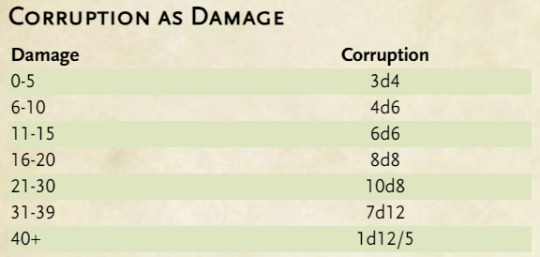
If this makes it more complicated than necessary, or you don't want to mix types of dice, just do 2d6 for every 5 damage.
Lair/Legendary Actions:
This is a good place on a stat block to sub in or add corruption. In addition to damage conversion, you may replace any condition caused by a special action (such as frightened or paralyzed) with a number of d12s equal to the challenge rating of the creature. If you wish to make a creature more powerful, choose one or two of these actions and add d6 corruption/CR to the existing effects (allowing a wisdom or charisma save to avoid it if you want).
Regional Effects:
Unhallowed land, the shadowfell, the territory of a cursed or undead creature, or the domain of an illegitimate ruler may all be places where corruption permeates the air and soil. Use it when it feels right or for a specific antagonist or faction if you want them to have a unique flair. When a creature finishes a long rest in a corrupted place, they must make a DC 15 Charisma saving throw. On a success, the creature feels a vague sense of unease but suffers no other effects. On a failure, the creature gains 2d6 corruption.
If the source of the corruption is a sentient creature, they can choose up to 13 creatures that they know to be within the affected area. When any of those creatures fails their saving throw, they instead gain 1d12 corruption for each night they have spent in the affected area.
Monster Traits:
Following are a few example traits that use corruption. They can be added to the statblocks of appropriate creatures. Alternatively, they can be used as identifying features of all creatures in a specific faction or from a specific place.
Aura of Evil. Any creature that starts its turn within 10 ft. of [this creature] must succeed on a DC [8 + proficiency + Cha or Con] Charisma saving throw or gain 1d12 corruption.
Corrupted Strikes. [This creature]'s weapon attacks are magical. When [this creature] hits with any weapon, the target gains 1d8 corruption. A creature immune to necrotic damage or curses is immune to this effect.
Foul Magic. Any creature that fails a saving throw against a spell cast by [this creature] also gains 1d8 corruption. A creature immune to necrotic damage or curses is immune to this effect.
Tainted Blood. A creature that touches [this creature] or hits it within a melee attack while within 5 ft. of it gains 3d6 corruption.
Items:
Below is a single example magic item, to show the way this mechanic could be used to represent curses.

I think it's neat because the ability to use corruption to your advantage encourages a player to seek out dark and dangerous situations. It makes corruption a little less scary, but it uses the meta to push the character to find opponents to inflict it on, lest they suffer the consequences of their actions.
Narrative:
In darker campaign settings, corruption can be used in roleplay to underline thematic elements. The DM may inflict 1-3d8 corruption on any character who gives in to dark desires, betrays someone's trust, does something impious or blasphemous, or witnesses something grim and horrifying.
The DM and players should decide ahead of time exactly which actions or events will lead to corruption, and how severe they have to be to incur a given number (or size) of dice. Consider which type of roleplay you all want to encourage, and which themes should be emphasized.
Player Options:
Spells and abilities that deal damage can easily be converted, either on a character by character or spell by spell basis. Spells that this change would be most appropriate for include arms of hadar, blight, chill touch, cloudkill, dissonant whispers, summon celestial, summon undead, toll the dead, etc.
You could also modify (or make up!) class features so that they inflict corruption instead of damage, or in addition to other effects. A vengeful Cleric's Channel Divinity might inflict corruption upon sinners, even a Rogue's sneak attack might inflict supernatural woe in place of additional damage.
If you, as the DM, allow players to cause enemies to gain corruption, remember that you should spend it more liberally than a player might. You can and should roleplay as that monster or enemy, but consider that a creature that will likely not survive the fight may make the players feel cheated if it never chooses to suffer the penalty.
Variants:
The damage type that corruption deals could easily be changed to highlight different themes. Change it to psychic damage for a more horror or lovecraftian setting, change it to poison damage it you are using it to represent toxic substances or diseases. Perhaps you want to use it to represent radiation poisoning, in which case it could be radiant damage (if not poison or necrotic).
Another idea I like is to make the corruption represent horrible luck. Because the damage is triggered by natural 1s, the DM can describe it as a consequence of some kind of accident and declare an appropriate damage type. For example: a character that rolls a natural 1 on an attack may fall on their sword and take piercing damage equal to their remaining corruption, or a natural 1 on the Constitution save triggered by a green dragon's breath may represent a character gasping and breathing in additional poison damage like an idiot.
Another change, for a more sword and sorcery setting, could include allowing spellcasters to accumulate corruption in exchange for more potent magic. Whenever an arcane caster casts a spell, they may gain 1d12 corruption and increase the level of the spell by one without expending a higher level slot. This could also be a mandatory feature, to make all magic a form of dark bargaining.
This has not been play tested so you may also find it necessary to balance it by including maximum corruption (perhaps dealing its damage if it reaches that threshold), limiting it to d6s or even d4s, or making it less deadly. If the potential damage seems too high, random, and/or disruptive to combat balance, it could be spread out. To do so, change it so that each time a corrupted creature takes damage, they spend one die and add it to the damage.
#dnd#dungeons and dragons#dnd 5e#homebrew#dnd homebrew#game design#ttrpg#ttrpg resources#first post#dark fantasy#fantasy
84 notes
·
View notes
Text
Unsympathetic Evil Done Right
“You’re not gonna shoot a puppy, are ya Jack?!”
“Yeah, in the face, why?”
NOTE: NO SPOILERS! SPOILER FREE!
A lot has been written about how to make nuanced, noble, and/or sympathetic villains done right. I think I’ve probably written about that too, pretty sure I have. But today I’m going to cover the equal and opposite quandary:
How to make a purely evil, unsympathetic villain who knowingly delights in being evil, but not have them be one-note or boring?
I think Big Jack Horner in “Puss In Boots: The Last Wish” is a really good example, and he’s from a piece of media that is recent and popular enough that most people will know who he is, he’s not some obscure reference. That said, none of this contains any spoilers for the film, so if you haven’t see it, you’re safe, read on—if you DARE!
I think there are a few things that make Jack really work. Firstly, he’s fun to watch while also being scary. He’s both hilarious and threatening, hitting that incredibly difficult sweet spot of being both comedic and a legitimate threat. It’s very difficult for bad guys to be both funny AND scary, since making something funny typically takes away its power to frighten us. But when a bad guy can do both, they become really fun for the audience. You’re not rooting for them, you don’t think they’re good people, but they’re damn entertaining. And yet, we still fear for the protagonist against them. We may logically know that of course the hero will triumph, especially in a children’s movie, but we have to at least wonder HOW that will happen. Jack’s established as a threat from the start, showing a cruel personality very early AND a vast armory of magical items combined with a task force of workers to help him. Even one of the other antagonists treats him with great caution. He’s still not the most dangerous of the lot (Puss in Boots sports THREE antagonistic people or groups) but you’d be hard-pressed to find someone who didn’t find him the funniest, I bet.
Part of Jack’s charm is how much fun he himself is having. He’s clearly just enjoying himself immensely up until the very end. He is ENTHUSIASTIC. He is ALL IN. Being a stoic, serious villain absolutely works better for a lot of bad guys, but these are typically for the ones who veer to the “purely scary” side, not the “scary and funny” side. Jack obviously loves what he does, and what he does happens to be being a bastard a lot. His callous disregard for the lives and wellbeing of everyone, including and especially his own men, is also played to the max for black comedy. Another part of his charm is his self-awareness; Jack very much knows he’s awful, and doesn’t try to disguise it in the slightest, nor does he lament it. There’s no scrap of shame at all, and he in fact mocks a character who thought it might be otherwise. Not only does the movie never ask you to feel sorry for him, he never does either.
He does have a backstory to explain his motivations, and I like it because it does make it understandable WHY he wants what he does, it just also doesn’t make him sympathetic in the the slightest because it only serves to play up how callow and entitled that he is. You get an explanation that makes sense, but “making sense” for this character also means “emphasizing that much more what an asshole he is” Note that I do think unsympathetic characters can still have very sympathetic backstories and be done well (one of my fave baddies is like that) but that’s another topic, and not Jack.
Finally, he’s not the only villain. As mentioned, there’s three antagonistic parties in this film. Of them, Jack’s the only one who could be called evil. One of the others is just doing his job/fulfilling his natural role and that threatens Puss. The other is competing with Puss & Co for the same goal, and is willing to do harm to the heroes to achieve it, but that goal really isn’t any more selfish or unsympathetic than Puss or Kitty’s own goals, and the character is very much a human being, as are her cohorts (though they’re not human, but you get what I mean!) So, Jack is a comically evil bastard who is evil through and through with no excuse, and he’s awesome and fun enough, but he’s also balanced by more nuanced villains who are really less “villains” and more “obstacles to the protagonist in some way” , one a force of nature, the other someone with a goal they can’t achieve without thwarting Puss’s goal.
It is definitely hard to pull off in a movie especially because of the limited time, but I think having multiple types of villains in a single work—especially a series, like a comic book or a television show—really helps with pulling each type off that much better. The noble and sympathetic villains can play off and contrast against the complete monsters, and you don’t need to choose between one or the other. In fact, what tends to irritate me most in a series, is when ALL villains are a single type—they’re all super redeemable tragic misunderstood woobies, or they’re all 2D evil cardboard cutouts who eat babies for kicks, etc. People will debate with each other all day about which is more realistic, but I think what’s most realistic AND most interesting for a reader/viewer/consumer is a nice mixed bag of diverse villains. Diverse here meaning diverse personality, diverse motives, diverse ranks on the ‘terrible person’ scale, etc.
Again, this isn’t doable in every work. But I think Big Jack type characters can still work well in a solo role as well. Good examples of this abound in the Disney Renaissance films—Scar, Ursula, Gaston, and Jafar are all the perfect combination of hilariously hammy and seriously scary that Jack taps into. This need not be limited to children’s media either, though I think it does work best there. But enjoyable “pure evil” villains in darker, more adult works can still be done, such as Freddie Krueger, some interpretations of various Batman villains, and, rather subtly, Hannibal Lector. The last one isn’t overtly bombastic, he’s not singing big musical numbers about his evil plans or cracking overt jokes every two seconds (though he comes close with his cannibilism puns in the NBC series), but he does have a wry and dry sense of humor, he’s very witty and cultured, and he’s very intelligent. He’s not funny per se, but it can be really interesting to watch him outwit others and pick them apart. While I’ve mostly focused on humor for what makes a baddy fun to watch because that’s the case with Jack Horner, it’s not the ONLY thing that can make them engaging either. Bringing up my point about “unsympathetic characters can have sympathetic backstories” from earlier too, Hannibal does have a tragic tale behind him, but it’s also undeniable he very much enjoys doing what he does for its own sake. Whether he’s truly unsympathetic or absolutely the reverse is probably more down to opinion, unlike Jack and the others, but personally for me he’s in the “just loves being a horrible person” category, and he’s still very interesting both despite and because of that!
Some people will tell you that pure evil characters are automatically boring. I don’t think so. I just think most writers don’t put the effort into making them interesting and engaging to watch. And there are MANY ways to do that!
81 notes
·
View notes
Note
It should be a cardinal sin in Vriskcourse to compare Vriska’s childhood with Eridan or any other troll because of how unique and isolated Vriska’s case was creating her into the character she was.
Even Eridan, who believed fully in the Alternian caste system and the superiority of the seadwellers who deserved everything for being perfect and strong used his power to feed Lusi to Feferi’s lusus to stop the vast glub and protect trollkind, even though he says he wants to kill landdwellers and makes doomsday devices with Vriska.
Vriska fed thousands of trolls to save herself from being eaten by her mom, and after listening to her and reading the journals of Mindfang, she took the philosophy of preserving herself by any means necessary to heart, even after the death if her lusus and by independent action she would force drastic harm on anyone who got in her way, even in a game of FLARP she injures Tavros for being on an opposing team.
In response to being haunted by ghosts from Aradia, she kills her to get even, rubbing in the irony of killing someone as revenge for being haunted by those she killed to survive.
The one time Vriska was less awful in her punishment than whoever hurt her was Terezi, who she permanently blinded in response to losing her eye and arm because Terezi tattled on Doc Scratch for Vriska having the magic cue ball from Mindfang, and as revenge for Vriska using Sollux to kill Aradia.
Now to Eridan, who despite having an equally violent and regressive philosophy was on good terms with every landdweller in the Sgrub team except Sollux, mainly because he didn’t want Sollux to “steal” Feferi from him. What Eridan mostly does is push people away either by spite or fear of commitment.
He pushes away landwellers by threatening them with genocide, and because he has a huge crush on a seadweller. He pushed away Feferi by always shutting himself out from talking about his troubles with Feferi and instead asking Karkat about his relationship issues, and in most message chats revolves the conversation around him or something which directly affects him, he really doesn’t talk a out what Feferi or what’s been affecting her.
He duels Sollux as a way to probe to himself he is still capable of the strength he believes he embodies in his caste and bloodline to dualscar, and to try and keep him away from Feferi, but mostly to push someone who challenges his ego and sense of pride away, and not even in a black way, Eridan fucking hates Sollux.
It’s only when Bec noir is made and his immense power ruins the troll’s session and destroy the troll’s dream moons does Eridan lose hope and decides to “team up” with Bec, offering allegiance with the surviving trolls, and battle with those against him. Until the very end he pushed people away and only let them into his fragile and scared ego when he was desperate.
Vriska was a taker, she forced herself onto Tavros to fill a quadrant and her destiny for the summoner to reunite with Mindfang, she used Kanaya to get with Tavros and improve her perception to other by looking more “mindfangy” and used her new power for reward and honor, stealing boondollars hidden in chests on her planet, and dealing the final blow to the black king. This went to her head when she found out about Bec. She decided she will complete the time loop and form Bec on purpose to fight and win, and thus “beat the game” as the best troll ever who deserves everything and everyone thinks is awesome… in her head.
And ultimately, while Vriska had no choice on who she was born to, or how she needed to survive, or what was considered right in Alternian society, when Alternia died and she no longer had a lusus controlling her, she made the choice to continue being Mindfang, and hold the philosophy of Spidermom, taking and forcing her way to the strongest member of the team and the woman of action, only regretting the decision when the effects when nothing was left to take from them.
Eridan only hurt trolls when his back was against the wall, otherwise he collaborated well with the other trolls, leaving his emotional frustrations between him and future Karkat until he gets forced onto the meteor.
The way I explain things, Vriska was uniquely cruel, because her upbringing was uniquely cruel, and given the choice to change, she didn’t, because most people like keeping things the way they are until the status quo damages their way of life, and she doesn’t want to be what other people want her to be, even if the request is to “stop hurting other people”
It is quite interesting that despite all those bad things in her life and her equally bad actions, she would find her way to reward herself as someone that's a hero or be place in a much better situation compared to everyone else. Because in the end of Homestuck, she got to live out of everyone else and the only one to reach godtier.
Though in doing so for Post Retcon, Karkat still ignores her, even if she was one of the last living trolls around and the one who subdued GAMZEE. Kanaya seemingly only let Vriska stop Rose from drinking if only to let herself be happy to get with the human at last.
Even if we take account of her ghost self, she found her happiness in reuniting with ghost Terezi and the two seemingly become girlfriends despite that they don't matter now that they are both dead. They won't have a bigger role anymore as long as they are finally together.
Is Vriska's upbringing and equal bad actions are the reason why she still mostly stays the same as she is and is rewarded for it? Another villain highblood like Gamzee, had a neglectful parent. Sopor slime pie was the only means to keep his violent nature under control and once that was gone, he had become nothing more than a servant for Caliborn to bring up Lord English. By Post Retcon even when he had committed the same actions for Murderstuck, at best he gets mind controlled before being shoved back into Meat. In Epilogues Meat, he is STILL trapped and alive. In Candy timeline, Calliope insists he lets him go free to redeem. However, it didn't seem like much redemption as he still acts the same way as before, if not worse when he and Jane Crocker fucked each other and had a child, making him a pedophile creep towards the young human son. Though John tries to call him out on such behavior, nobody believes him and Gamzee gets passed to continue to do such things.
By breakup, the last thing he did was have a quick one sloppy kiss with Vriska after she brutally pummeled him. Just when he was about to text his friend, KARKAT, about what he did, Vriska did something that had been a while since it occurred. She KILLED Gamzee. A clown troll that was mostly unkillable and immortalized because of his role to raise Calliborn and become one of the vessels for Lord English. The closest we got of Gamzee actually dying was in GAME OVER with Kanaya killing him by slicing the guy in half.
So then what makes Vriska being able to stand out this much and getting back into the narrative despite how she was raised and what she done herself that she also continues being just herself? Is it the delusion that she would be kept being at a good spot the reason Skaia and Paradox Space allowed her to let her be? So never changing is the only option to stay alive in the timeline? It has been proven via Dream Bubbles of other dead ghosts that change and improvement gets punishment by death and irrelevance.
It's a strange message that "be yourself and never change will get you good outcomes" is their message here. If not just applied to trolls, but to the kids as well. They may have all changed in certain ways, but haven't grown in the mature-mental way. And everyone there is content to live with the fact if it means they still stay relevant for everyone to see. That changing for the better or improving is the worst. Nobody wants to see something new or grow for the better. They prefer the status quo. Any changes, whether it is officially from the creator or from fan content, is seen negatively and pushed aside. Anything that doesn't follow a common rule or fan favorite ideal, is unimportant. Maybe that's why Vriska is still herself both in series and fan content. That's why she is still talked about today and still here. It's still probably favoritism, but hey, if it means to still be around for dubious canon sequels, Vriska will find a way to get herself back in and not fall down to irrelevancy.
#Vriska Serket#Homestuck#HOM3STUCK#Homestuck fandom#Homestuck2#HS2#HS^2#Homestuck 2#Homestuck Epilogues#Homestuck Beyond Canon#HSBC#Eridan Ampora#Gamzee Makara
20 notes
·
View notes
Text
Monster Spotlight: Shadowgarm

CR 2
Neutral Evil Medium Aberration
Adventure Path: Council of Thieves: The Bastards of Erebus, pg. 80-81
These grotesque, malleable predators hail from the Plane of Shadow where their frightening and ever-changing forms are as commonplace as coyotes and leopards, which coincidentally is the ecological niche they fill there. Feeding on vermin, carrion, and whatever creatures they manage to ambush, Shadowgarm are seen as dangerous pests in the Plane of Shadow, but in areas of Golarion where the barrier between light and shadow is thin, these boneless creatures can slip in through the cracks and become something all the more dangerous.
Mechanically, Shadowgarm are not harmed or even inconvenienced by normal light (magical light is different, staggering them so long as they remain in the glow!), but they have an instinctual dislike of the sun's rays which causes them to retreat during the day, cramming their distorted shapes into whatever container can accommodate them until nightfall. There are horror tales of these creatures taking up residence inside attics, cellars, or trash cans, as well as within cabinets, crevices, or crawlspaces between walls, only to be fatally discovered by someone investigating a strange noise or odd odor. Equally awful are stories of them climbing onto outcroppings (with their 30ft climb speed) or the undersides of bridges and then dropping onto prey from above like the night sky come alive and gaining a taste for flesh; horrifyingly enough, this is their go-to tactic for hunting humans. They're not animals guided by instinct; they're actually intelligent (5 Int, but still), and if placed into a new situation where prey requires different hunting methods, those methods will be adopted.
Shadowgarm in urban settings will usually satisfy themselves on garbage, vermin, and carrion, but if the opportunity arises to snatch away a lonely traveler or singular guard, you can bet they'll take it. Sneaking up on prey with their +10 Stealth, the book notes that Shadowgarm seem to draw some unusual enjoyment or perhaps even sustenance from laying in the shadow of a living creature (though not enough to prevent it from attacking), so an unaware victim may be trailed by one of these things for minutes at a time before it actually deigns to strike. Shadowgarm can Full-Attack with a trio of lashing appendages regardless of how many limbs they seem to have, each dealing only 1d4+2 damage but coating victims in a layer of Shadow Slime.
This oily black ooze coats the creature at all times, but each attack it makes can transfer a small amount of it onto their target if they fail a DC 13 Reflex save. Each time they fail, they take a cumulative -2 penalty to Dexterity... meaning that victims are caught in a negative feedback loop. Every attack forces a save, and every failed save makes the next one harder and makes the creature's next attack against them easier, and if a creature's Dex is fully engulfed by the penalty, they become entirely cocooned in the slime. Such victims are paralyzed and blinded until the slime dissolves, either an hour after the last time they were attacked, or if they remain in a source of bright light for several rounds, each round burning away a 'stack' of the slime until none remain. Y'know, provided they aren't just coup de graced by the aberration that slimed them in the first place.
The 'garms don't have a mouth or, really, any orifices to speak of, and instead eat by parking their bodies over their food. Any flesh or bone they're touching for long enough dissolves into wisps of shadow that are absorbed into their folds of their strange bodies. Victims of 'garm attacks thus disappear entirely but for piles of clothing, with not even a single bone scrap, hair, or blood spatter to mark where they once stood. To anyone who knows of these creature's feeding process, it's a sure sign of their presence, but to anyone who doesn't know, it's a sight that may make them believe the victim is still alive somewhere or trick them into thinking the culprit may be some magical kidnapper instead of a voracious predator. They may waltz into the creature's lair without knowing what they're up against.
With low AC, low HP, and no resistances or immunities (but their 7 Spell Resistance can catch low-level casters by surprise!), it may be easy to dismiss the rest of them as no threat to an armed squadron sent to exterminate them, but one cannot view such a beast in a vacuum. No, in its natural state, the Shadowgarm is a frightening and enigmatic creature that a common guard may not know how to deal with, especially since their distorted anatomy makes them seem far more fearsome than they appear, shifting and blending in with the shadows to make them appear larger or far more formidable than they look when in the light. Their Shadow Blend inflicts a 20% concealment penalty to any creature attempting to attack them when they're in dim light or darker as their forms shift and shudder unnaturally in the darkness (which stacks with any penalties a creature is suffering from if they cannot see in the dark!), and though they cannot make Intimidation checks, NPCs may lose their nerve when their blows appear to do nothing to the horrid creatures, and a descriptive DM can take several unfortunate misses in a row to make it seem like the creature is simply immune to weapon attacks.
However, like in any horror movie which relies on mounting dread and mystery to build up their monster, when you can finally SEE the monster, it becomes less scary. A single brightly lit torch takes their darkness distortion advantage and the majority of their intimidation factor away, revealing their sockpuppet-from-Silent-Hill shape to the world. Still spooky, but nowhere near as nerve-wracking! The very same torch also burns away the creature's Shadow Slime if held near enough to an affected creature, making the humble torch a must-have when going into Shadowgarm lairs even over the party all chiming in with "I have darkvision!"
You can read more about them here.
39 notes
·
View notes
Note
Idea:
Simon goes to the Isles and Elements does happen. After Finn meets Minerva, she and Simon have a little talk, she wants to meet one of the persons looking over her son and maybe Simon can convice her that Ooo its not a bad place and that Finn its better there that trapped in Founder's Isle (and stopping the White Cloud incident from even happening to beggin with).
And once they return to Ooo, everyone freaks out and Simon immediatly flies to where the Snow Kingdom was to find Betty.
I do wonder, at this point Bonnie its again a Princess or is still on excile for her crimes? Because I can see Patience trying to convince her that aweakening her Elemental powers is what she needs to return to her position and protect her loved ones.
man you just keep hitting me with genius after genius, props to you.
so what I’m thinking is, Simon tags along to look for more humans and Snow Queen ends up going to see them off at the beach, but stays behind because she doesn’t really have a reason to go, but she knows it’s important to her prince so she’s obviously not going to try and stop him. At this point, she’s a lot more aware that Magic Simon can protect himself just fine, so she’s a little bit less overprotective and overbearing in that regard. still just as clingy, though, but Simon honestly sees this as a plus since he’s equally clingy.
on Founders’ Island, Minerva tries to convince Finn to stay, first by words and then by force. after seeing Jake stretch and Magic Simon hover in the air, she’s thoroughly weirded out by everything outside of their island and is utterly positive that Finn will be much safer if he never leaves. Simon, however, has seen this once before in the form of Snow Queen/Betty trying to keep him trapped in the Snow Kingdom forever in order to make sure no one can yet him. Minerva sees from Finn’s memories how dangerous Ooo is, but when Simon steps up, he knows exactly what to think of to prove to Minerva that Finn is capable of living in Ooo and doesn’t need to be coddled and constrained. Minerva sees all the times that Finn has won the fight and celebrated with all his friends, the times he’s sought out Simon and Snow Queen for comfort and reassurance, the times his friends have all supported him even when it does become too much. Finn may not be the most powerful in the world, may not win every single fight, but Minerva needs to see that Finn will always have his friends and family in Ooo to support him, no matter what.
and Minerva caves. Simon has been more of a parent to Finn than she ever got the opportunity to be, more than Martin ever chose to be, in her eyes. Finn has parents, a brother, so many friends and so much family, and Minerva… she can’t — won’t — take that away from him.
of course, then everything gets Weird As Hell as soon as they get back to Ooo. Simon definitely panics and runs off to go find his wife as soon as he realizes she might be in danger (so, immediately), leaving the rest of the gang to sort out whatever the fuck is going on by themselves.
when he finds her, she’s a heap in the newfound Ice Empire, lying on the outskirts just outside Patience’s dome, unconscious and without her crown (and strangely enough, there’s a propeller hat lying above her head like it fell off when she fell). Simon of course freaks out and tries to wake her up, but without the crown, she’s catatonic. the most he can do is cast a bubble around her to make sure that nothing and no one can harm her while he goes to get the crown back. the crown is a problem, yes, but without it, she wouldn’t be alive right now. Simon would much prefer an alive Snow Queen to a dead Betty, and he’s sure his beloved would agree.
Patience gives up the crown fairly easily, and it’s not hard for Magic Simon to figure out what happened from the remnants of the ritual left on the ground, etched into the ice itself. she used the crown as a battery for some sort of element-based spell, but rather than the traditional four of fire, earth, water, and air, it’s fire, ice, candy, and slime, a quartet he’s only ever seen before this in the Enchiridion and in a few old texts he found in Wizard City. there are at least four places which correspond to these elements that he already knows of — the four kingdoms that match the four elements, and the Snow Kingdom is already a mess as it is, what with Patience St Pim having gotten her hands on it. He shudders to think what the rest of Ooo might look like right now, but he needs to go and help Betty before anything else. Once she’s safe, they can go and find Finn and Jake and BMO, and regroup by the Candy Kingdom.
also: Bubblegum is back in her kingdom at this point and is on slightly better terms with SQ and Marcy after she apologized, but Marcy is still a little bit pissed off and will take a minute to cool down from that.
(KoO went running for the hills after they called Phoebe on his ass. She’s a very effective wax deterrent.)
#adventure time#snow queen au#simon petrikov#betty grof#petrigrof#petrigrof role swap#elements#islands#patience st pim#answered asks#minerva campbell
41 notes
·
View notes
Note
Hi! First of all, love your blog!! I have a question that I would love to hear your thoughts on - I love your analysis of catra and think so much of it is spot on. I love hearing about how much of her actions have come from a place of love for adora.. I was wondering what about the scene where she cuts adora off the cliff to presumably fall to her death? was she really in that moment ok with killing her? what do you think about Moments like that where we see the physical harm she is willing
Catra's long walk through darkness to being the light of Adora's life-
This is such an important moment so thanks for bringing it up. To put things simply, Catra believes she’s not killing Adora. In fact, I'm certain she KNOWS she isn't. How am I sure? Because what we’re seeing play out is something deeper, that is, in fact, magic... (meta to come, but first…)
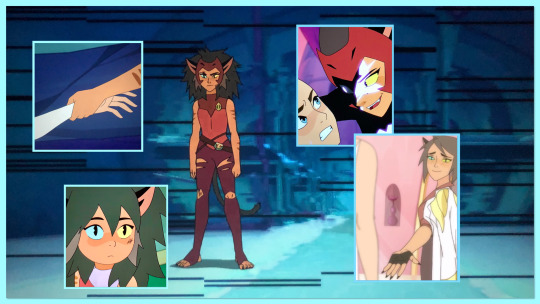
Pictured: four times Catra encounters Etheria's magic- (Promise/Promise/Portal/Heart Part2)
Promise is the most important episode of SPOP prior to s5, it really has no equal. The fractured history of their relationship before we meet them in ep1 is revealed, and as such, the reasons Catra feels she must be apart- all while there are actually three forces acting upon both Catra and Adora. I hear about two of them, but what's the third?
I'd encourage anyone reading this meta to carefully listen as Catra makes Adora fall. Because what we're hearing is important. (feel free to do so now or later)
youtube
🎶🎵 Do you hear it? 🎶🎵 Why does the music rise and then gloriously crescendo as Catra says her final goodbye?
The music rising here makes this an 🎶undeniably🎶 positive moment for Catra. This is -their- song, Promise, and it crescendos as Catra leaves Adora. So what's the deal?
Well, in short, it means that Catra leaving Adora is the right thing. How can that be. Well, Adora's willingness to sacrifice herself, and others, who she loves, to fulfill duty is wrong. Adora isn't becoming a hero like the Princesses and Light Hope tell her she is, she's walking into a millennia old trap. Catra has seen this behavior before, and Adora’s not choosing the strong path of a hero of love.
Adora’s false belief in duty means that she goes from fulfilling one manipulator's every wish, Shadow Weaver, to another when she gets the sword- the First Ones. And Catra knows in her gut that Adora is wrong, like she has been before. So, Catra -must- refuse to enable her any longer. In doing so, Catra is rightly asserting her own personal worth.
The narrative arc goes on to show us that in s1-4 Adora not a hero, and the reasons Catra is rejecting her during Promise are exactly why she's not on the true path of She-ra: By rejecting love, Adora cannot be a hero, she instead enacts a false form of false justice thats based in naive belief and others prejudices. This is why Catra wanted to go, because she’s seen it all before- where Adora rationalizes others' pain as part of her false duty, letting her anxious need to satisfy others control her.
Yes, the war is terrible, and Catra is directly involved in its cruelty. We should absolutely fault her for that. I'll of course talk about Adora's violence being similar, but Catra indeed rationalizes violence as necessary in a terribly biased way. Like many of you, I found her s4 portrayal hard to stomach and I didn't know if she could come back from who she seemed to have become. It took Nate Stevenson’s genius s5 for me to realize he had done something amazing with her and Adora’s arcs. Yet, in the subtext of the plot it's obvious that Catra shouldn't go with Adora, as well as that the war that they fight in s1-4 isn't quite what it seems... (more later)
In the most basic way possible, Catra would not want to go along with Adora considering her false behavior, but this is a decision reinforced by the power of magic, which we’ll discuss. Catra’s choices are rooted in survival always, (not in wanting power or proving herself, nuhuh) and the way Adora treated her was abandonment which encouraged the violence she was up against from their abuser. It's not surprising Catra would want to go her own way, and so the only way she sees for herself to survive is within the Horde. It's about survival, simply that.
And Adora, meanwhile, can't have her cake (trying to enact a false form of She-ra justice) and eat it too (have Catra’s love.) She feels loneliness where Catra used to be because of her own falseness that she’s acting out due to her traumas. Going on emotions alone there are good reasons for their separation, and both are wrong, but there's also a magical force here that's leading them both up to the true crescendo of Promise when Catra confesses her love…
But I digress, let's discuss the meaning of Promise, and the hidden magic behind what happens.
The 3 forces: two good, one "evil"
The first of the three forces acting on Catra and Adora in Promise is plain to see: the love which they have for each other, which ought to mean that they can heal their divide. But, as we know, their love is too fractured at this point to do so.
The next is our 'evil' force- Light Hope, who most people assume is controlling what they see in the Crystal Castle to manipulate and divide them towards the ends of enacting the First Ones plan of destroying Etheria. But, does this explanation really make sense, or does it lack something?
Why would Nate Stevenson have the music soar as Catra walks away from Adora if that were the case? Promise being so gloriously played as she does this makes this a positive moment for Catra, although melancholy, and not the moment of Light Hope's triumph in her dark plot. We don't hear this song played so gloriously again until s5 when Catra confesses her love, when the music reaches its true crescendo. Maybe the music here means that Catra mustn't go with Adora, for Adora’s own sake-?
This is what I mean by a third, mysterious and -magical- force, that's also acting on them, which is on the side of good, but is seeing the long game and trying to avert the larger disaster we see at the end of s4 when the weapon is activated- the evil First Ones plot nearly coming to fruition and destroying them all. This force gives Catra a push towards separating from Adora during Promise, where it is letting history play out so that Adora's falseness as its hero is exposed. This force is deep planetary magic...
The rising of the music is a hint its presence, but the direct evidence of it is seen during strange happenstances in Promise, which we’ll discuss, as well as further occurrences later on in the series. What this force is trying to accomplish is the halting of that evil plot, as that is paramount, and is working towards Adora developing into the hero of love she's supposed to be. Adora needs to have the strength of self to reject false manipulations and burdens, in order to defeat their true enemies all along- the First Ones and Horde Prime.
And, for Adora to confront her own wrong baises, Catra cannot enable her false rationalizations any more. So, the magic is acting on Catra, helping her to decide to go. It's not just her anger at Adora's rationalizing away her pain that's guiding Catra's decision to let Adora struggle alone as a false hero, the magic tells her that she's right. If Adora can't see how she's wrong, like how she didn't know Shadow Weaver continued to torture Catra, then being apart is what’s right for Catra and also what will enable Adora to come to terms with her own weaknesses. All of which needs to happen for Adora to realize the path of the hero of love, and for them to come back together in the end and win with the power of love.
This force guiding Catra is the deep magic of Etheria, the magic of love.
Razz describes magic as a source of beauty and of good, which cannot be controlled, it just is.
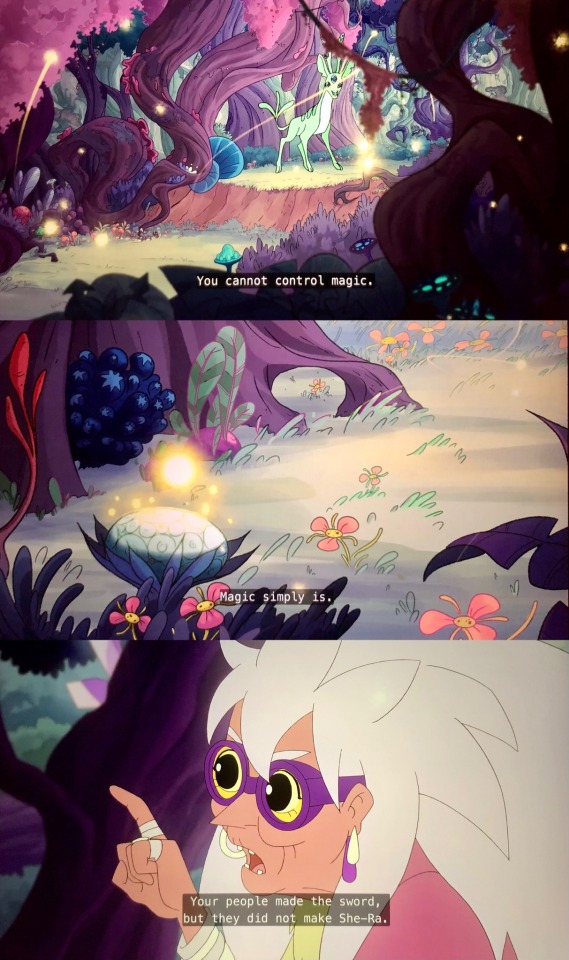
It is love, as well as the beautiful diversity of life, it is its own innate force- and love is more powerful than anything in the universe. Loving is perhaps the greatest thing we can do during our lives…
And, as we first see Catradora in episode 1, there's hardly any love, especially from Adora back to Catra. After all, Adora rationalized and enabled their abusers actions. Catra, in contrast, was still doing her best to love Adora as of ep1, to wake her from her anxious need to satisfy Shadow Weaver, to bring her back to love. But she had no way to reach her, because Adora had stopped listening to her long ago...
During Promise, Etheria's magic sees that Catradora is but a whisper of its potential, and it needs both of them to be strong by love. Adora may go on to learn to be a hero of love the hard way, making many mistakes with grave consequences, but Catra’s journey alone and the dark consequences of her actions will give her the wisdom she needs to be strong enough to be with Adora, who is the focus of over a millennia's of violence and deception. It's Catra who knows to double down on love, and by doing so is able to unlock Adora’s power of love that lets them win in the end.
But I digress- what does the guidance of this mysterious force look like, and what are its intentions?
The first uncanny moment of its intervention can be seen when Adora beings to fall and Catra catches her:
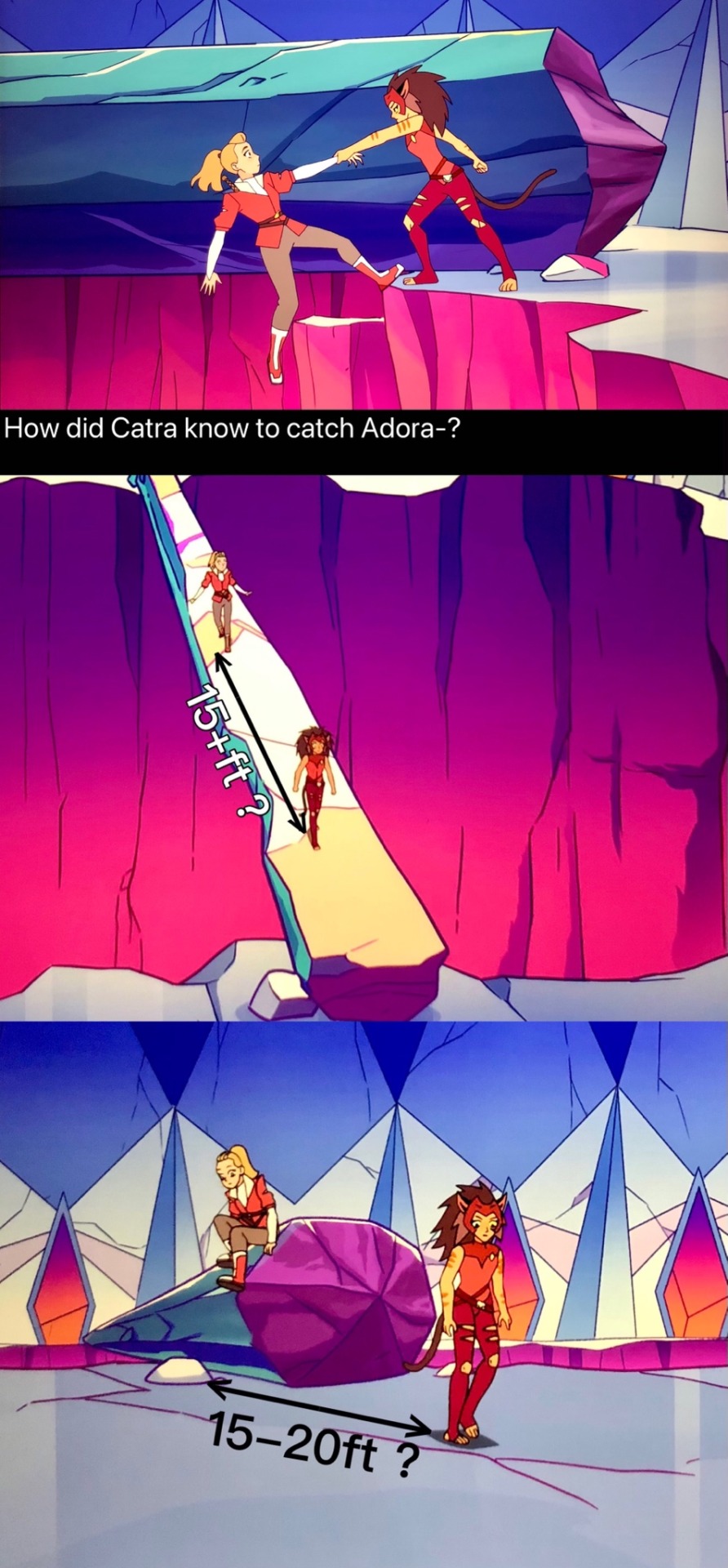
The way the plot has Catra so casually in position to catch Adora feels unnatural. That's because, as we’re watching this scene, Catra is in no position to save Adora, having distanced herself from Adora because she was pestering Catra about why she returned the sword, aggravating her.
Catra so illogically being out of place to save her here is a hint that there's something else going on. It's as if Catra knew Adora would fall before it happens…
This is what I mean by guiding force, because I believe this is exactly what we're seeing- where it's Etheria’s magic guiding this moment, not Light Hope. It sets a trust fall moment for them. And we can see how Adora doesn't get it:
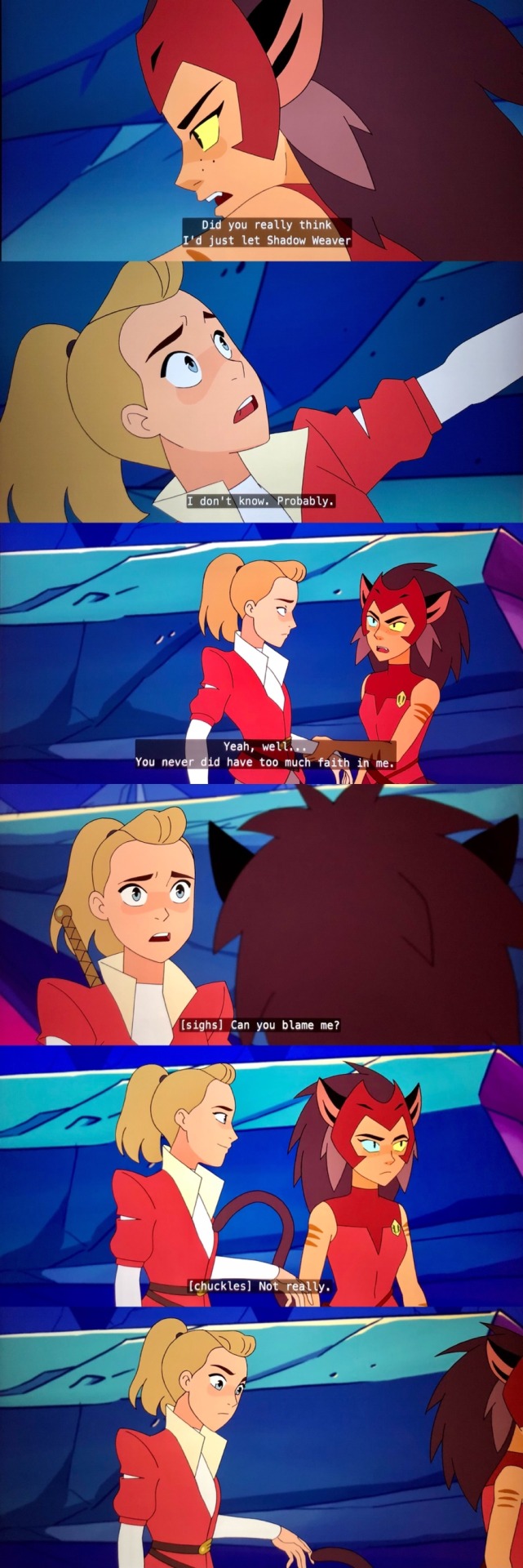
We know in canon that Catra always loved Adora (also, Catra's tail flirt at the end ☺️), but the prejudiced viewpoint Adora shares here shows just how little she gets it. Like how she didn't know Catra continued to be tortured by Shadow Weaver, like how she didn't know the Horde was evil before Glimmer berates and guilts her over it, yet Catra did. Adora is far too focused on duty and satisfying others unfair expectations to see the truth, it was true before she switched sides and it's true afterwards, and that’s how she's not on the true path of She-ra.
We're also seeing the thesis moment of Promise here, because the rest of the episode plays out to show us just how wrong Adora is. We see the memory of Catra being tortured and then treated with death threats by their abuser, how Adora came up short in standing up to Shadow Weaver, and then how she went on to break the promise she made to Catra in order to satisfy their abusers expectations. Adora has a naive belief in duty due to her trauma that's being exposed and which prevents her from being the true She-ra.
During this moment of Catra catching Adora it's not so much that Adora misstepped, than that the magic changed the ground to make sure Adora would start to fall- setting up the trust fall, of which Catra is given privileged knowledge is about to happen, that exposes Adora’s false mentality for us to see.
::I suspect Catra likely feels this coming like hearing a whisper in the back of her mind. It is the first of many guidances from the magic... how it happens doesn't really matter, as we see further evidence of interventions on their behalves later in the series. But in Promise, she will act on this whisper, which confirms to her that her feeling that Adora is misguided are justified, like she has seen Adora be before. Since Adora had closed herself off emotionally to any guidance Catra tries to give her at this point in the series, Catra will choose to go alone instead.
So, there really is no way Catra would be with Adora at this point in the series; hoping she’d be with her with Adora’s falseness as a friend is hoping for something that was simply not there. Catra, as the person who Adora stopped valuing with love, will (unconsciously) play the part of Adora’s foil in s1-4 that's needed to expose the weakness that makes her no hero of love. This is where Catra's needed, and Etheria knows Adora’s failure to trust in love will lead to her failing as Etheria's hero, something that must be corrected if the cycle of violence is to ever actually stop- as she goes on to do at the end of s5. It's guidance is a nudge in the direction of Catra leaving so Adora will learn how she's a false hero.
Adora really does have a problem with letting others misguide her, Light Hope of course but also Glimmer, who forces false burdens on her unthinkingly. Adora must instead choose love over false duty and burdens, because love is what can guide her hero's journey and will make her strong enough to overcome the really difficult things that history is asking of her. Catra will help her do this gladly in s5, but don't make the mistake of assuming Adora in s1 was capable of accepting Catra's love and advice, she’s blocked it off from herself with her anxious trauma guided beliefs. In truth, Adora needed to change for the better just as much as Catra did.
Now, I realize that this theory may be hard to accept, because it means Etheria stans the war, if only a bit. But, with how much is wrong with the war, such as the prejudices the Princesses show while further being ignorant of how they're part of a First Ones weapon, there are no easy solutions to fixing this. Etheria needs them all to be stronger, but to be strong they must choose that strength for themselves- the strength of love, it cannot tell them what to do. Doing that produces no real strength.
They must learn- the hard way: Catra and Adora must choose to value love by their own will, but that doesn't mean Etheria isn't going to remain idle when so many seek to manipulate and destroy them, especially such as with Adora, who is the focus of Light Hope and the First Ones plots.
It's acting on them both here, but as it just so happens, there's another time the magic guides Catra during Promise-
The next time we see Etheria guiding Catra is as she watches Adora make the promise to her child self that was broken, and then Catra's child self stops to look back at Catra, her eyes full of meaning:
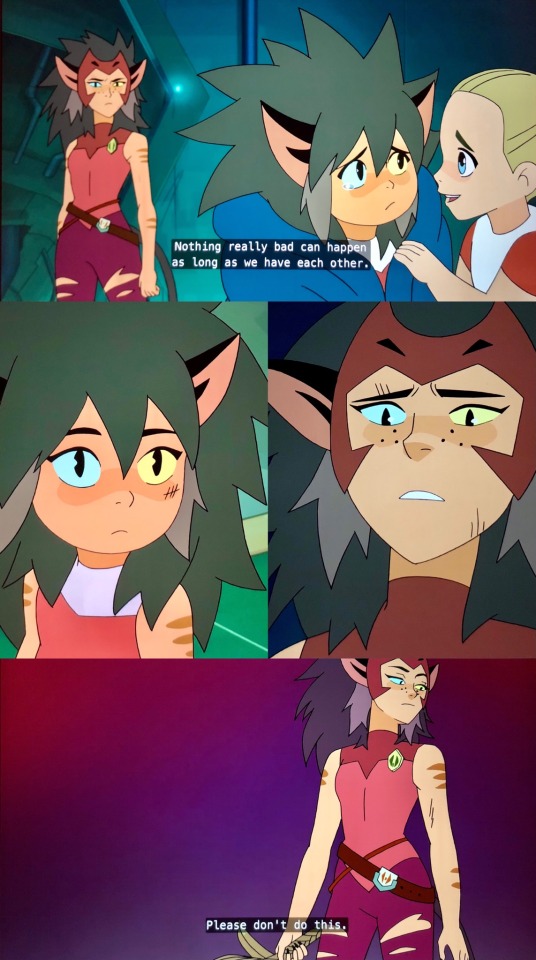
Catra's child self's actions here isn't a memory, it's an addition, one added by Etheria as it tries to communicate to Catra the gravity of Adora’s misguided behavior. I really can't accept the idea that Light Hope produced this moment, because she's not some perfect abuser. There is way too much nuanced emotion occurring.
Etheria’s magic, on the other hand, is a living thing- even if not human, it intimately understands love as a powerful force that exists in nature, and it's telling Catra to not enable Adora's false heroes path any longer. Not when she values love so little as to give in to prejudice and allow others ignorant and/or self centered narratives to guide her.
Their real enemies- the First Ones and Horde Prime, will be able to exploit Adora’s fragile guilt complex against her- by accepting the sword, she stepped into their trap. Because of that, in s1-4 a thousand years of manipulations are right on track to give the First Ones what they want- destroying Etheria, something that can only be stopped once and for all if Adora accepts her true self, her loving heart that makes her the hero of love. And Catra, while the Horde IS wrong, is providing the proving grounds needed for Adora to develop her own hero's way by allowing a false conflict to continue.
Adora remains misguided all the way until s4, when she starts to trust her own feelings, laying the groundwork for being the true She-ra we see in s5. It really does take her this long to do this, she really turns the corner on it for the better when she voices total rejection of the First Ones control in s4 as she smashes the sword, instead speaking her own mantra based on love. And, this rejection of the roles made for her by others happens in large part because of Catra’s unwillingness to accept Adora as someone who enacts naive and false justice. Even if it's hard to watch, Catra refusing to enable Adora was correct.
::As Catra's child self looks at her, magic is trying to tell Catra that following Adora now would mean nothing would ever actually get better, and that her behavior will result in further disaster. Catra decides then that following Adora would be the wrong thing to do...
::So no: Catra isn't trying to kill Adora at all, or even at any point in the series. We can take her words at the Battle of Brightmoon, that she knew Adora wouldn't die, to heart. Not that it's also easy to see how she knows that they are inside a simulation, and that on some level none of it is real, and that she therefore knows Adora is not in real danger if she falls.
But, Catra can feel that something else is trying to tell her that Adora is wrong, confirming her suspicions that Adora is on a false path once again. This force is Etheria’s magic, and it will guide her yet again...
That's the short answer, but we should talk about the other evidence of Etheria’s guidance and it's implications. Next up in our journey: the Portal episodes.
Later Evidence of Catra's connection to Etheria’s magic
Etheria’s next guidance happens during the Portal event, when all hope seems lost and Etheria is vanishing towards non-existence. The veil that separates magic and reality thins, and because of it, we get Corrupted Catra, returned from death instead infused with knowledge gifted by Etheria’s magic about She-ra’s of past to teach Adora that she is playing into the First Ones trap, read the full meta here if confused, or here's a handy summary:
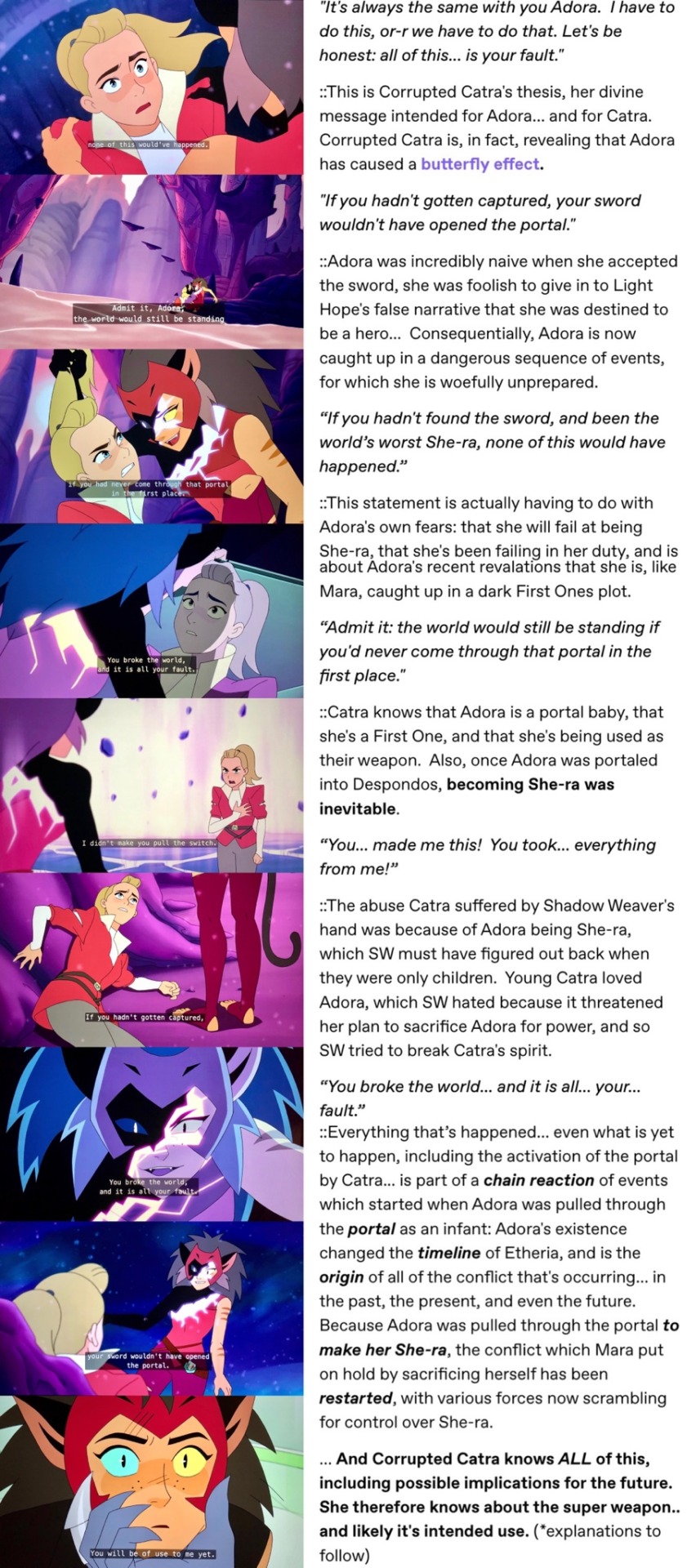
As the world is collapsing into nonexistence, Etheria’s magic takes this opportunity to give Catra all of the knowledge she could ever desire that Adora and the Princesses are on a false path that’s naive, ignorant, and will lead to the fruition of the evil plans made for them by the First Ones, as well as giving Catra the whole history behind She-ra and the wrongness that’s allowed this to come to pass.
In s4 Catra at first takes this given knowledge to mean she must pursue renewed war against the Princesses, as well as against her abuser, >whom they are harboring<, before realizing her knowledge of the history of events leading to this wrongness means she’s in a unique position to help Adora overcome it all during s5- for the sake of love and survival. Probably a discussion for another time, so I digress.
The final major whisper happens in s5 while Adora is dying in the Heart chamber. As she is slipping towards death having given in to despair, Catra is able to save her by sharing the dream with her with Etheria’s help: it links their consciousnesses together. Read the full meta above if confused, or quickly here:
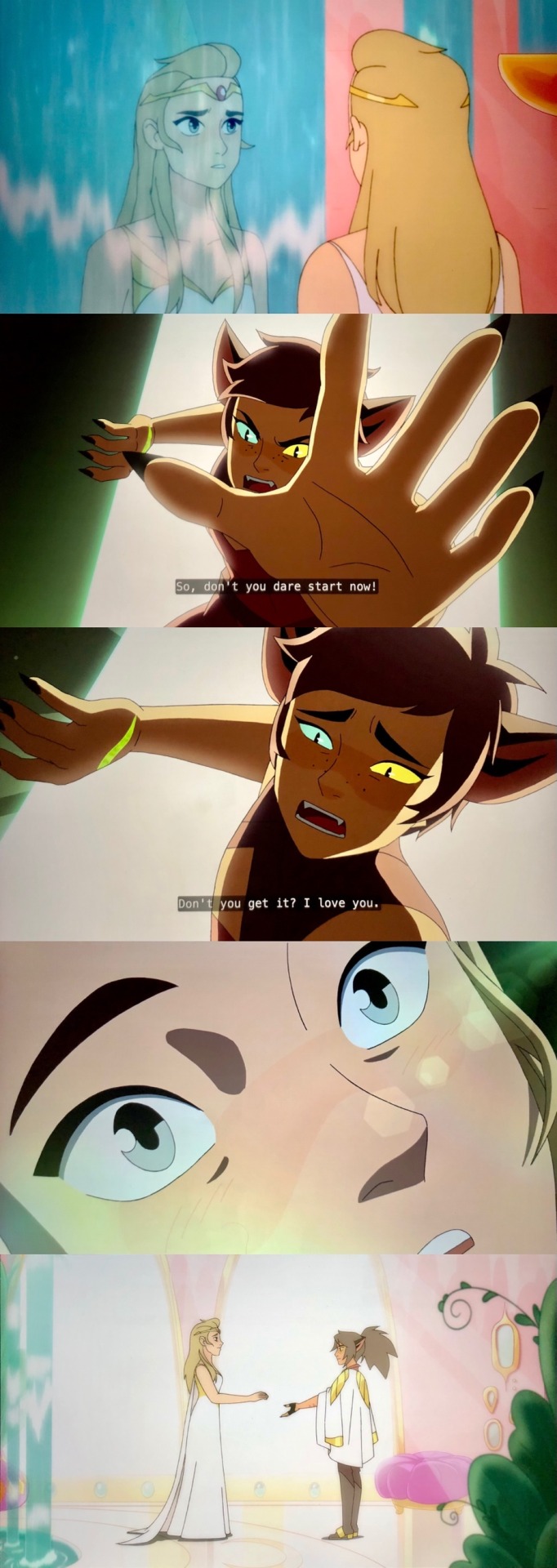
This isn't a random vision Adora has, they both see it and it's the personification of Catra’s love brought to life with some help from Etheria’s magic, to show Adora what she has to live for. It's magic, and yeah it's tapping into Adora's own repressed feelings as well as Catra's, and it can do so because while the Heart may be a machine, the magic inside it isn't- it has its own living consciousness and it understands what their love means. Etheria itself powers this moment, it is their biggest shipper- it helps them win in the end!
To conclude; each time it has an opportunity to act, like it does during Promise (because they are inside a simulation), the magic of love does so to help and guide Catra. And, by association, Adora. It's with Catra’s guidance that Adora is strong enough to absorb the Heart and win, as Catra is the one who brings Adora back to the power of love. Catradora love is so powerful that it can save the universe, but by theory, it doesn't happen without a little help from the wisdom of Etheria magic- and its innate knowledge of the power of love.
This masterful level of narrative arc is something I'm certain Nate Stevenson is capable of. And so, Adora and Catra aren't apart to make the plot work, it's a necessary part of Etheria’s magic guiding them towards the power of love, and helping them towards correcting the systematic wrongs of their world once and for all. While that equals Catra being on the wrong side of history, her resistance is part of proving to Adora how she is wrong as a hero. It was necessary.
But aside from that, let's talk about how Catra uses violence, since this AMA directly brings it up-
SPOP is a great show where there's a lot going on behind the scenes. Because of that, I think people tend to make up assumptions to fill in gaps they can't yet figure out. It's only natural, but one way I feel a lot of SPOP fans go wrong is when they suggest that Catra enjoys and seeks violence.
That's not really true- the data doesn't back it up. For example, Catra always holds back from killing. It's true in every fight, it's true like a dozen times over while she has Adora captured and at her mercy, but let's talk about the one time Catra had every reason to feel justified in killing.
This would be in s4 when Hordak comes after her. There's no doubt Hordak has deadly intent, to maim or to kill her, so it makes total sense that Catra would justify killing out of self defense. But instead, she goes to elaborate lengths to make Hordak land the final blow upon himself.
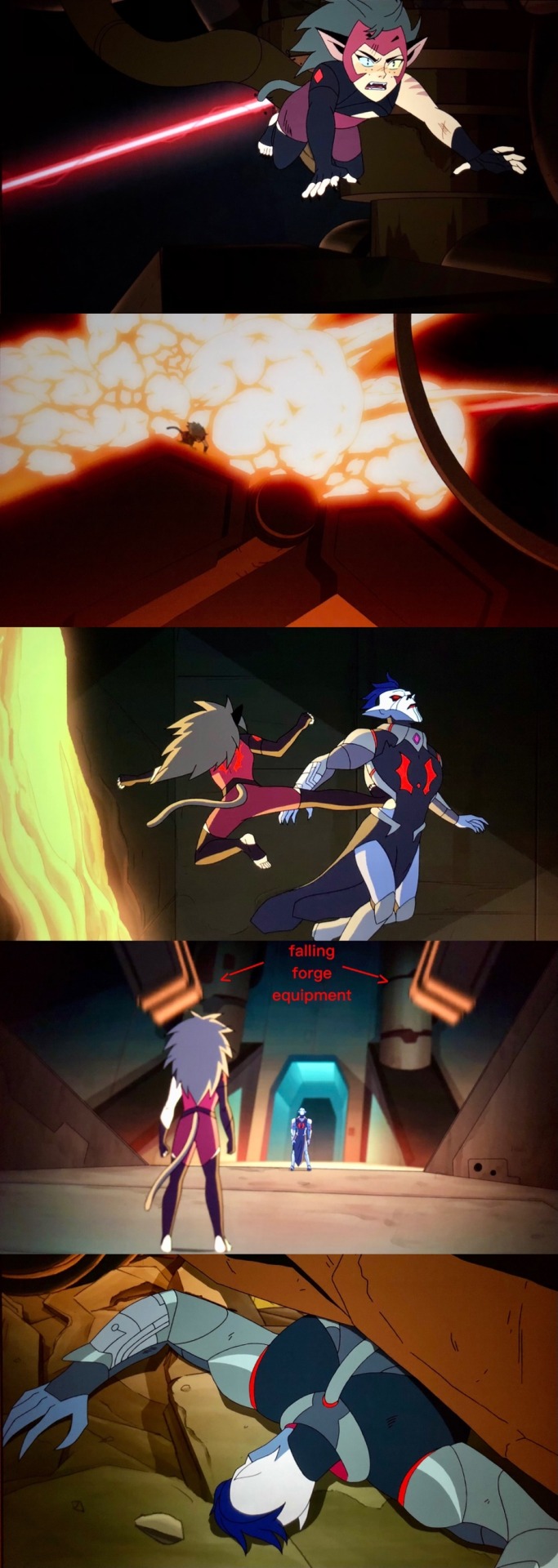
Catra sets him up to be done in by his own anger- he damages the forge equipment which crushes him while trying to kill her. So, even at the point of extreme personal peril, while Catra knocks him into the path of the falling equipment, she's making sure her own hands are clean. She really abhors killing- and she's fighting in control, always.
Therefore, any time we assume Catra is trying to kill is suspect of our own prejudices. She chooses not to, that's a line she chooses not to cross. I can say personally as someone that had to win fights brutally to protect my life and sanity, that I did have pride in winning those fights. That's what you're seeing on Catra's face. But, I can also tell you that everything about actual fighting disgusted me, and Catra is the same.
Catra grew up in a system where the violence was always going to come for her, fighting back was necessary and right. I can't empathize enough how being in such a position changes your outlook on life, and if you didn't experience her situation, you might not understand her. And yes indeed, as time goes on, Catra’s reliance on fighting does run out of control, so much so that it leads to her losing conscious control over it, such as shocking Entrapta and opening the Portal. But to that, let me say, in how Catra felt threatened by her abuser at that moment, it's surprising she didn't snap *sooner*- everyone has a breaking point, and after careful watching, I'm certain Catra considers that moment her greatest failure.
But hey, what fun is a meta without comparing her to her counterpart? What we actually see is that when put under pressure, Adora loses all control over her emotions and lashes out. This is in addition to how she’s self destructive, as we all know.
Adora does, in canon, almost kill Catra multiple times. I'm not even going to discuss Legend of the Fire Princess, you can read a discussion here. Instead, let's look at the Battle of Brightmoon.
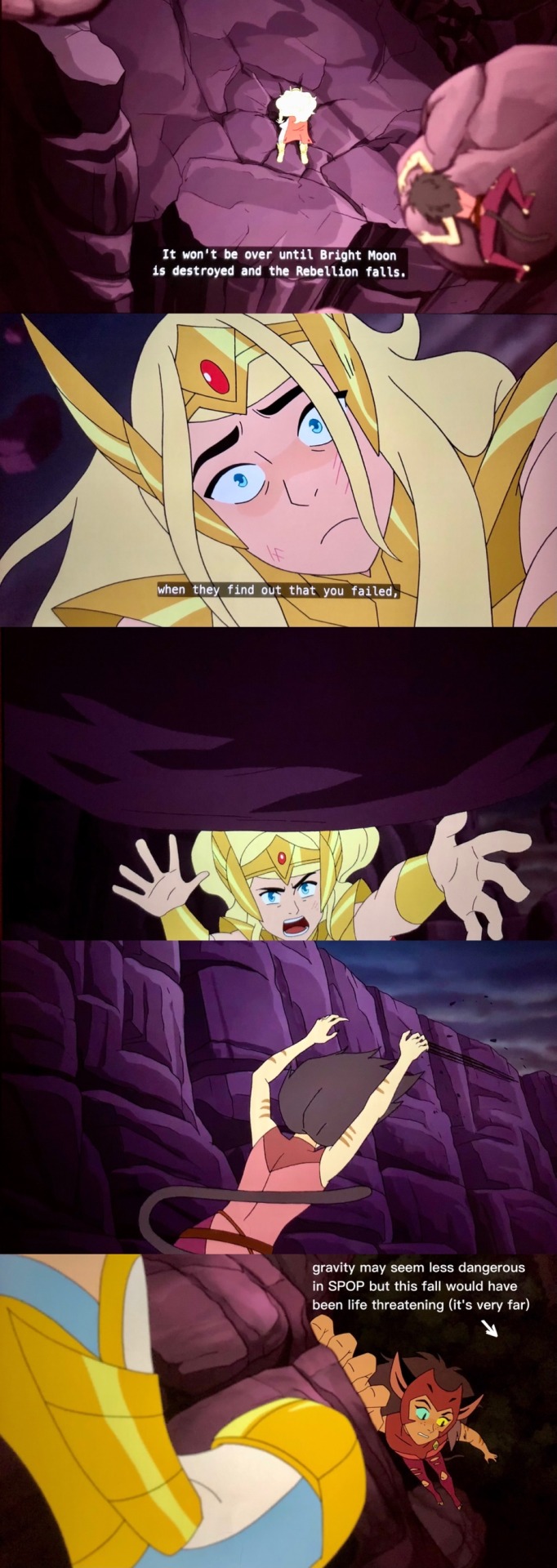
How is it so easy for Catra to make Adora lose all control?
In part this difference in fighting with control comes from how Catra grew up under mortal danger from their abuser, she learned to be prepared to defend herself, either physically, or mentally against torture. She became hyper vigilant, and learned where the line between life and death stands, as well as her own breaking points. She learned how to act so she could hide her emotions, she sees bad things coming from miles away, and she prepares for them. When she leaves Adora in Promise, she can tell Adora is being manipulated yet again, reason enough to not follow her.
Adora, in contrast, was the target of the manipulations and the teacher's pet, and as such was supposed to win every contest, so she was treated that way by her teammates. At the moment she finds the sword, Adora is a person who’s never actually been in a fight, she doesn't know how to control her fear or her anger. Everything she's done was a training exercise. So, her emotions run out of control all the time.
All Catra had to do to make her snap was play on her guilt complex and fear of failing, something Shadow Weaver instilled in her to make her die for sacrifice, yet Catra can't stop herself from seeing Adora as being weak for giving in to it. It is indeed a weakness, and meanwhile, when Adora left she passed total judgment against everyone in her old life on the word of a manipulative computer program. She fails to try to understand them and goes on to try to win the war against them through extreme violence alone, she does this not out of some great moral clarity- she does it mostly out of guilt over how Glimmer and Angella make her feel bad about it- yet Glimmer is one the most flawed and prejudiced characters we see.
Adora is failing that critical test, and her behavior mirrors a lot of irl behavior we see in people who claim and want to be good but end up hurting others because of their naive understanding of what good actually is. Also, remember that Catra does come full circle in s5 to see how Adora was hurt in order to be controlled by guilt, and helps her get past it. She's the one person who can really get through to Adora on this matter. Catra is the only person who ever really tries to put the brakes on Adora’s need to anxiously satisfy others, not going along with her was part of this, and in s5 she insists that Adora stops doing it yet again.
Catra continues to object to Adora's misguided choices in s5, and she deserves praise for this, even if in the past she refused to go with Adora and fought the war instead. Adora’s behavior has to stop sometime, yes she laid the groundwork for it in s4 such as developing her mantra and smashing the sword, but we see how she's still not past what her abuser did to her in her decisions in s5. It'll take Catra's help to break past this, which we'll discuss more below.
So when it comes to violence we're supposed to consider this dichotomy: of Adora's unstable mentality and Catra's careful application of force. Nate is playing our presumptions against us by doing so, and asking us to look deeper. Because, when we investigate violence, we see it's actually Catra who can meter her violence to the situation, and it's Adora who's violence runs out of control. Catra uses violence precisely, usually as a tool for survival, she doesn't enjoy it. These are fights that were always going to come for her and she's not running from them. During s1-4, Catra is very deliberate with her choices, you can't really say the same about Adora.
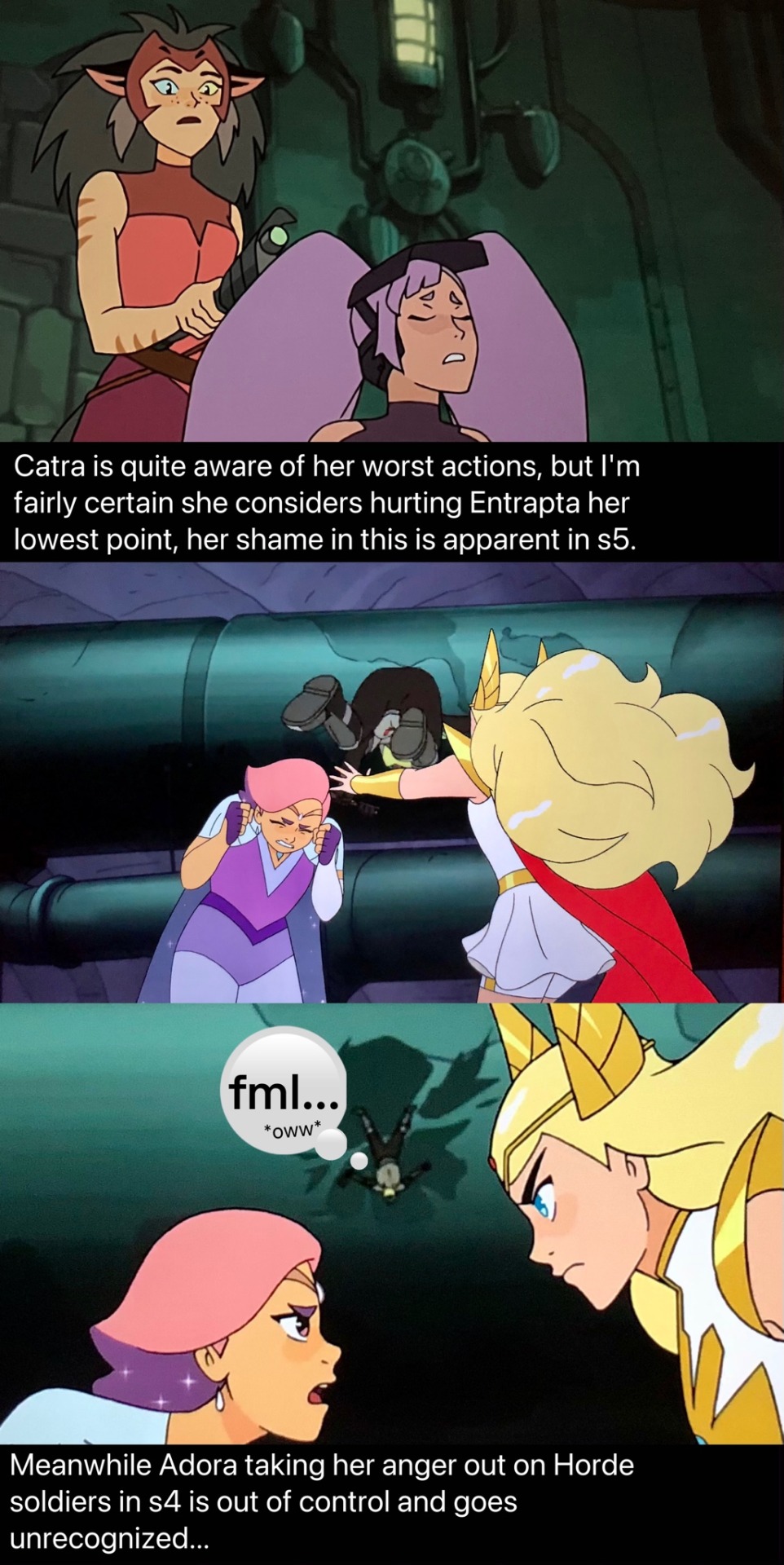
Final thoughts: Catra's understanding of survival is what's most important to saving Adora's life-
Ultimately, Catra's arc is about love and not this magic, of course. And in this a big part of her arc is about convincing Adora not to die- Catra, who refused to die all along, must be strong enough to help Adora survive- by showing her how the choice of living is stronger than sacrificing to fulfill her (false) burdens.
We watch along as Catra goes through trauma and learns to faces it head on, she comes to terms with in a way that Adora couldn't... as the focus of a millennia long scheme meant to make her fail. Catra's relationship with trauma, and her experiences of nearly letting herself get killed because of those traumas, allows her to be a guide for Adora in s5 and her help is what powers Adora's final transformation.
This is something the magic helps her to do- because what it's doing is giving her the truth behind it all, so that she can be free to choose love. 😎 Yet, her s1 choice to survive, and to be apart from Adora who endangers her, is not the wrong choice, because, in fact, surviving will be Catra's most important lesson to Adora while she saves her.
Which is to say that we ought to recognize Catra's choosing survival, as opposed to Adora's acceptance of martyrdom, as a form of strength, even if she's working for the wrong side. A lot of what Catra does is inarguably wrong but she's also right about a lot- she's right that Adora betrays love and can seemingly rationalize any act in the name of corrupted duty, Catra barely survives Adora trying to literally kill her multiple times- and no, Catra doesn't ever try to kill her in return.
And Adora chose to rationalize it all in the name of She-ra not out of some great moral calling, but out of an anxious need to satifify others which their abuser instilled in her in order to control her. Catra knows all this and is right to assert that Adora's attempts at being She-ra in s1-4 won't 'fix' anything... and that she'd just continue to get hurt if she went with Adora. So, Catra puts being with Adora on pause and does what she feels she must do to persist- before rejoining Adora in s5 once their most dangerous enemy discovers them all, and helps Adora to chose survival, too.
Adora's view point, in short, is self defeating and pretty nihilistic, whereas Catra's really isn't- she is trying to live when everyone else, Adora included, seems to want her dead.
You cannot really be selfish in demanding to live- life is sacred, and Catra has respect for her sacred right to live that we all have. If people tell you to die for the narrative, as Adora tries to do, what's right is to reject it. Catra is the one who tells Adora not to die because she understands this fundamental truth. Catra shows that sometimes violently rejecting other people's control, if they're trying to kill you, is what's right. And yes, she does take it too far in s1-4, but it's all part of the story of how she surivies long enough to get past her trauma in order to be able to help Adora in s5.
Her understanding of survival is so important to share with Adora because that's where she's strongest yet Adora is weakest... It's also true that Catra understands love much better than Adora, we see that in her love confession, but her telling Adora she's got her love to live for isn't all she does to save her. She also instructs Adora on the wisdom of what it means to fight while respecting your own right to live. Catra, who was told by Shadow Weaver that her life had no value and should just give up and die, knows very well what it means to fight while never giving up.
Catra's words "you've never given up on anything, not even on me" are so important because she's telling Adora not to die like her enemies want her to do, while simultaneously paying respect to Adora's newfound heroic path, telling Adora that she believes in the hero Adora's trying to be. In this moment, Catra knows Adora must chose her right to live, that which is her sacred right, or they are all doomed, and that Adora isn't seeing that choice as the fundamental right that it is. She knows Adora is expecting to sacrifice herself, which she's doing out of guilt.
Catra's words instead help to show Adora how not giving up fundamental right to life is the right choice- she starts by acknowledging how Adora is fighting for the right reasons- such as her mentioning that Adora never gave up on her and returned to save her from Horde Prime- a decision shows that Adora is a true hero. A true hero does not rationalize away someone's death as necessary when they know the person about to die has goodness in them, Adora saw that truth behind Catra's actions, so her rescuing Catra was right. It was a breakthrough moment for Adora, nevermind that she needed to save Catra for the sake of the love they had for each other before Shadow Weaver tried to break each of them...
But, if you know you're fighting for the right reasons, then you must insist on living to prove it through your actions- you can't die to noble sacrifice. Because operating under that belief is a form of weakness. Adora's constantly doing this means she's inherently weak, and all while the world that Adora wants, one that's right and just, can come true- but only if Adora chooses to survive in order to prove it. She has to continue being She-ra. Survival is necessary, because without it there can be no better tomorrows. It's not wrong to want to survive.
So with these words Catra is telling Adora to survive- Catra survived many close calls with death leading up to this moment so that she can tell Adora how to not to give up and die. Through her experience of surviving, Catra finds a way to save Adora from her own self defeating beliefs.
Catra in s5 is a person who's prepared to be her better self- she's processed her trauma to get past it, and is seeing that survival cannot be the only answer to living, you've also got to have something to live for. And that's loving Adora. So after all of that, Catra is not going to let Adora fail, falling to the self destructive habits their abuser instilled in her, and instead shows Adora the way past it all. As the person in the relationship that who's processed her trauma. You have worth. We all have worth! And believing that isn't selfish.
So, it had to be both things, not just Catra telling Adora she's in love with her and she's got that to live for. Adora also has to choose to survive.
So there was no simple answer because of the depth of the problems facing Etheria. They are being lead by princesses who are naive, self involved and ignorant- something Adora blindly devotes herself to. Catra refusing to go along with Adora is a big part of her getting past that misguided framework to be a real hero who can save the universe and stop the cycles of violence for good. And ,if Catra had gone with her? It almost certainly would have resulted in the destruction of Etheria when Light Hope manipulated Adora into activating the heart while having no idea of the consequences. No simple answers- because the princesses are not right in their ways, never mind that the Horde brang war upon them.
The strength of Catra's belief in choosing survival is what leads her to being able to guide Adora past her self destructive nature to save the universe.
When Catra kisses her thus imbuing her with he power of love, we see Adora transformed into someone fundamentally stronger, she's the embodiment of goddess lesbian power that we love. Why Adora becomes so much more powerful is because she is now fighting with an understanding of both parts of what it means to fight from a true position of strength:
To fight while insisting on your sacred right to live,
And to fight with something to live for and the belief that your morals are good and must go forward. Only when you do both can you be your most powerful- you have to have enough respect for yourself to believe you deserve to live!
Adora understood the second point to a degree, but not the first. She was never going to be a complete hero without Catra showing her how to value herself. Now knowing both lessons, Adora is a stronger She-ra than any before her- and is one that can stop the cycle of violence for good.
Catra's story as a message to people like us who survived-
In s5, what we're seeing is a fully emotionally realized Catra, a person who has matured and surpassed her traumas and has gained the wisdom and clarity needed to save Adora, by sharing these hard learned lessons with her. And, we only get to see a fully realized Adora after Catra shares these truths with her- an Adora who can finally step past the trauma thinking their abuser instilled in her.
S5 Catra proves to us that she's this person over and over, she's reclaimed that she must trust in love, yet I still see people doubt her. People sometimes say Catra's transformation in s5 was rushed, but it really wasn't- if you consider how after Etheria's magic showed her the dark truth behind it all, then Catra was in a position to choose the better path- after going through the worst and seeing the truth for what it is. This is her therapy- it's the truth that she's shown by Etheria that gives her the choice to see past her trauma.
Catra's story is a tribute to knowing that if you're in a dark place where you've been hurt like Catra was- know that not giving up is what's right, know that you have a scared right to live, and that your abusers are wrong. Keep fighting, keep believing. Sometimes that fighting will get ugly. But, this attitude she shares with Adora, of never giving up, it allows her to be the all powerful lesbian goddess we love her as. Nate is telling us to not give up- through Catra's story and further showing us how this wise and mature Catra has the strength to help Adora past her trauma as well. He's also telling us to not give up on love. It's one of the most brilliant narrative arcs of all time!
Trust in Catra! Trust in your sacred right to living! Huzzah!
But we're not done explaining Catra's actions, are we? Let's talk about the wrongness of war she's leading on Etheria...
Yes, war is always wrong, but here's what I meant earlier when I said the war on Etheria isn't quite what we expect-
It is, I believe, the canonical truth that Catra did not preside over a army that was committing genocide- one of the most common criticisms of SPOP. But, how is it possible this story is different from the other war stories we're been constantly fed (such as ATLA)? Simply put: it's because Hordak's army had no need to commit genocide.
Do you really think Nate would wants us to skip over this catching point? No, instead Nate decided to cleverly sidestep this issue.
In SPOP, there's never any direct evidence of Hordak's army doing as such, yet we're shown in all explicitness that Horde Prime and the First Ones ARE genocidal. Who were the real enemies all along. That's important. Why Hordak's army doesn't gun down civilians is because the villagers in SPOP never fight in the war, they never ever raise arms against him. It's the Princesses who fight, and furthermore this is reinforced when we see that most of the anger the villagers voice is directed towards the Princesses, not the Horde.
Genocide is mostly motivated out of two factors- one: hatred and racism- let's just say that simply doesn't exist on Etheria. But the second reason is to remove the others side ability to fight back- if everyone's dead, there can be no uprisings. But, the villagers never fight. So, Hordak's army had no need of shoot-to-kill orders.
Contrast this to Horde Prime and the First Ones explicit genocidal intentions, add in the villagers anger not being directed at the Horde but instead at the Princesses for abandoning them to war, and you've got the full story behind how the war was being fought.
Assuming Hordak's army was gunning down civilians is instead a presumption carried over from other stories, but Nate set us up to expect that then subverted the expectation by showing no such thing- and by showing the real enemies explicit genocidal thinking, was asking us to look deeper. SPOP is a show which subverts our presumptions at every turn in order to make a better story. This certainly doesn't absolve Catra of being wrong, but I think we should understand that she's wasn't directing a genocide- I don't think she was capable of doing that.
Catra actions are in no way perfect and we're not supposed to think they are, but I really think Nate intentionally did this so that this catching point would not detract from the overall narrative:
Which is to say that the way Adora tries to be She-ra in s1-4 was never going to 'fix' anything, she's a proof of the flawed heroes stories we saw too often growing up. Victory would be miraculous and not explained, always dues ex machina, and unsatisfying. In SPOP, Adora goes through actual character growth to become the person who can change the world, and she doesn't do it alone. Catra's love is what shows her the way to be better, and it's not easily earned or miraculously given- they struggle to understand and accept each other. And that makes for a much more satisfying conclusion, with a kiss that's so believable that I don't expect to see a more meaningful kiss in media for the rest of my life. Thank you, Nate.
Thanks for reading. I hope I did an ok job discussing a very sensitive topic. This has been the hardest thing I've ever written.
::psps: this isn't the tell all for this theory, it could probably use its own discussion post so let me know your questions.
If you enjoyed it, let me know with a like and please pass it along with a reblogg if you can! We writers really appreciate them most of all because of how tumblr works! Thanks a ton.
Thanks again,
-EtheriaDearie
PS:S: Happy Pride and Nimona release tomorrow!! Yay!! 🏳️🌈🥳
42 notes
·
View notes
Text
It's Fictional Throwdown Friday!
This Week's Fighters...
The Terrarian vs Paper Mario!
Conditions:
Mario has absolutely everything except for the Pure Hearts. Terrarian has everything. Speed Equalized.
Scenario:
The Terrarian intends to steal the Crystal Stars to use them to make a new weapons set. Mario stands in his way.
Analysis: The Terrarian
The land of Terraria, despite it's unassuming exterior, is a chaotic and dangerous one. The universe was created as an experiment by the Gods, a test to see if some form of cosmic balance could be maintained. However this balance was threatened by the dread god Cthulhu, who sought to bring all of Terraria under his domain. Luckily, the ancient race known as the Dryiads were able to overpower the dark lord, fighting it to the very last man and crippling him irreversibly. This forced Cthulhu to retreat to the dark side of the moon, where it would attempt yo regain its strength to one day attempt to conquer the world once more.
That day was soon to be fast approaching as a cult arose, seeking to revive Cthulhu and bring his horrible reign down upon all. That is when our hero enters this story: The Terrarian themselves. They were a simple nobody of unknown origins until the mysterious guide appeared before them one day and sent them off on their quest to prevent Cthulhu's return.
And luckily for all of us, The Terrarian has many.... many.... many tools on hand to help them fight the forces of darkness. This dude has more armors than Tony fucking Stark, each of which designed to help them combat that numerous beasts infesting Terraria.
Every armor and weapon at their disposal bolsters their already superhuman strength to some degree, which says a lot when they're capable of killing ghosts and blasting zombies into big meaty chunks with just their bare hands. Many of their armors, as well as their healing items such as potions, campfires, and statues, can speed up their regeneration, which is already good enough to help them recover from having their face ripped off. On top of that, many of their armors allow them to duplicate ammunition, allowing them to mow you down with their variety of gattling guns and magical crossbows with complete impunity. And if that wasn't bad enough, their most powerful armors can increase their capacity to summon minions as well as allow them to turn invisible.
On the topic of said summons, they're completely intangible, unable to be harmed even by those who can kill ghosts and effect souls. This is especially problematic when you have to deal with all the other things the Terrarian's magic can do. They can make it rain damaging blood from the sky, bring down small meteors just by swinging their sword, can freely teleport just about anywhere is sight or teleport all the way back to their base, and even nullify your ability to heal from it all. Their ranged weapons are equally deadly, capable of shooting poisonous projectiles, intangible projects (that go straight through everything that isn't you), giant fucking lasers, the works. Really it'd be easier to list all the ways the Terrarian can't kill you.
I don't think that the Terrarian wouldn't be willing to use this on you either. They can be shockingly ruthless in the pursuit of their goals. For example, they were perfectly willingly to permanently sacrifice their Guide's life to get a shot at killing the Wall of Flesh, unleashing the spirits of Light and Dark and causing untold chaos in the process. Hell, they even helped hasten Cthulhu's return just so they could kill it themselves and solve the problem for good. So you can fully expect some ruthless tactics out of them. Magically enducing confusion in you to get an opening? Check. Sucking out your very life force until you're nothing but a dead and empty husk? Sure thing. Spraying you with a weapon that corrupts you into a mindless servant of the all consuming Crimson, omnicidal Corruption, or over zealous Hallow right down to your very soul? Yes, they'd do that.
And good fucking luck retaliating properly, even assuming you could hit someone who can fly, teleport, and turn invisible at whim, their numerous charms and armors grant them resistances to poison, mind control, fire, ice, and many, many more. Hell, they can even resist your ability yo nullify said resistances with the right gear. And if that's not good enough, they can even transform themselves at will into a form that gives them a better advantage, such as a merfolk who can breath underwater or a werewolf with increased strength at night.
Even with all this at their disposal, the Terrarian does have some considerable weaknesses. That being that a lot of their stuff relies on their gear. If you take that away, you'd be left with an incredibly experienced and skilled fighter... but that's about it.
Having said that, they're still an underdog ehen compared to their competition. The Terrarian builds nearly all their gear themselves and has used it to slaughter entire armies and even outright gods in the span of a single night. For example, the Celestial Towers that sealed away the Moon Lord (Cthulhu), are powerful enough to pull the moon closer to the Earth in the span of seconds. The kinetic energy generated would measure out to 152.98 Ninatons of tnt, or 9x more than the energy needed to destroy the Dwarf Star OTS 44.
Source:
And keep in mind, this isn't even the Terrarian at their peak. They would later fight against the same Mokn Lord who was stated to be capable of destroying the entire realm of Terraria.
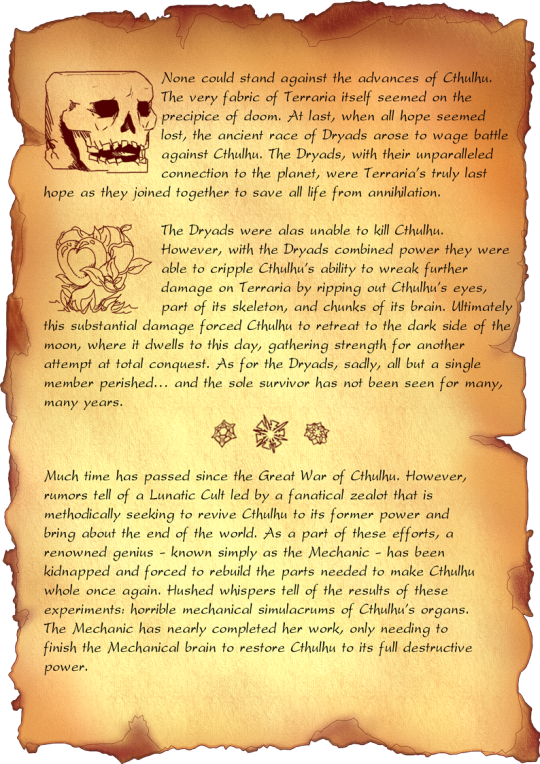
The loot they got from beating the Moon Lord is even stronger still. When you're powerful enough to beat gods who can destroy stars, you're powerful enough to do damn near anything. The Terrarian is far more than a simple Minecraft clone. They're in a league all of their own.
Analysis: Paper Mario
Mario "Jumpman" Mario. You know who he is and what he does. Even if you've never touched one of his games, you probably know everything about Mr. Video Game. This humble plumber has risen high ever since his humble days chasing after Donkey Kong Sr. Being basically the only competent form of security that the peaceful Mushroom Kingdom has, Mario has rescued its resudents and princess from the clutches of the nefarious Bowser countless times. But some of his adventures are a bit.... craftier than others.
For the sake of this analysis specifically, I'm treating Mario and Paper Mario has two distinct entities. While Nintendo has gone a bit back and forth in the past as to whether or not Mario and Paper Mario are the same guy, with several games in both series referencing the events of each other's games as canon while at other times treating the two as completely distinct entities, so really, you're fair to read them either way. Mario has about as much continuity as Tom and Jerry most days anyways, so for the sake of fairness, I'll be limiting Mr. Jumpman to his arts and crafts arsenal today. Even when treated distinctly, Mario and Paper Mario should powerscale off each other in stats regardless, because Paper Jam is a game that exists.
Not that being two dimensional has made Mario's arsenal any less vast. The usual arrangement of hammers, fire flowers, and mushrooms with various effects are all here and accounted for. Paper Mario is just as capable of making big jumps as his three dimensional counterpart and has saved his version of Peach just about as often. And what's unique in Paper Mario's arsenal is often times uniquely devastating.
Mario's papery proportions allow him to move in unique ways. He can flip between 3-d and 2-d to avoid attacks and reach otherwise impossible areas and he's been "cursed" with all manor of shapeshifting abilities, from the power to turn into a paper plane and soar through the sky to the power to the ability to turn into a paper boat to crosd the sea! Mario can breath in the vacuum of space (except for when he can't) and survive space radiations completely unprotected.
Moreover, Mario's inventory is versatile and deadly. The mega star can make him grow absolutely gigantic and let him plow through everything in sight, while his Pixl allies give him a whole host of powers. Tippi analyzes his enemies for him, giving him advice and informing him of their stats, Barry creates, well, barriers to protect Mario from threats, Carrie turns into a floating platform to carry Mario and pals out of danger, and Thoreau lets him pick up and throw enemies and objects over twice his size, among many others.
Over the course of his first adventure, Mario would rescue the seven Star Spirits, allowing him to overcome Bowser's wish granting star rod and nullify his invincibility. Mamar sings a song to put enemies to sleep, Skolar rains down stars from the sky, Muskular decreases the enemy's strength, Misstar restores his health, Klevar stops time, and Kalmar transmutes the enemies into stars. The Crystal Stars can give many of the same abilities, on top of powers such as creating Earthquakes and sealing away beings as powerful as the Shadow Queen, who could cause earthquakes all over the world and covered the world in darkness.
Yet, despite all that variety, Mario's most powerful and arguably strangest ability comes in the form of things. Real life objects of incredible power that can be used to absorb and redirect poisons, melt entire mountains, and even spin the entire planet! Such a feat, if performed on Paper Mario's world, would generate a kinetic energy equivalent to 154 exatons of TNT. That's enough to shatter the moon!
Source:
And that's on top of being considered equal to his mainline counterpart. The same Mario whose power stars can create galaxies, who could survive the universe being reset, and defeated the Megabug, a dimensional instability that was going to destroy Mario's entire dimension.
2-d or 3-d, Mario is one of most powerful video game characters Nintendo has ever created. No matter what side series he hails from, Mario is the mascot for a reason.
Throwdown Theme:
youtube
Throwdown Breakdown:
Oh boy, oh boy, oh boy. This is a big one.
The arsenal on both of these combatants is absolutely massive. I don't think I even touched on half of it in either of their run downs. And both of them have ways of killing each other right out the gate. The Terrarian could always just corrupt Mario into a unicorn, but Mario can just as easily turn the Terrarian into stars. As video game characters controlled by the player, neither side really has a go to openinh move in combat, so determining who wins the quick draw is difficult. And that's on top of all the abilities that just counter out, like flight, because they both have several ways of doing it.
On one hand, Mario cannot destroy or guard against the Terrarian's summons, as even people who can punch ghosts to death bare handed can't touch them, meaning Mario's ability to fight Boos wouldn't help and he'd be getting harassed all fight. On the other hand, Mario's ability to shift between two and three dimensions would provide a similar level of Intangibility, as Terrarian has never shown to hit a foe who becomes incorporeal in such a manor. On the third hand, Terrarian has even more ranged options, with a huge plethore of guns, bows, and magic staffs, whereas Mario heavily relies on either massive Area of Effect attacks or attacks that are relatively close range.
Both of these combatants can either defeat beings who or are comparable to beings who can defeat people who can threaten to destroy the entire universe, so there's no considerable gap in power. Any attempts to buff or debuff stats would get swiftly countered out anyways by potions and power ups.
So what's the deciding factor here? Well, there's a few things that work in Mario's favor here.
1. Unpredictability. As vast as the Terrarian's arsenal is, all their weapons are at least things that look like weapons at first glance. Mario, meanwhile, can just summon a giant chicken or stop time with a stop watch, or spin the Earth with a fan and you don't know which until he does it.
2. Analysis. Tippi is going to be able to give Mario a tip that the Terrarian is very dangerous and very versatile, cluing him in to the fact that he should open up with a winning move first, while Terrarian is going in blind.
From there, Mario could just stop time or put Terrarian to sleep before turning them into stars. While Terrarian could just as easily open up with an instant win move, they both wouldn't know to do so and would have no way of predicting Mario's arsenal because of how out there it is.
As versatile as these two god killers are, Mario is just that little bit... craftier.
This Throwdown's Winner is....
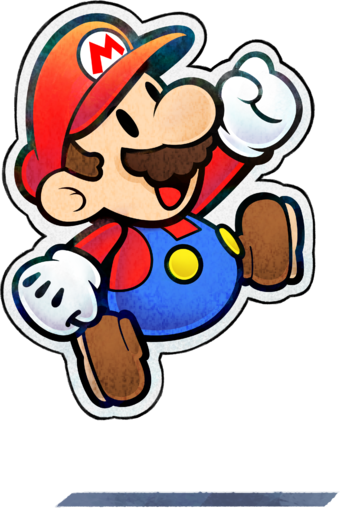
Paper Mario!
15 notes
·
View notes
Text
I saw this lovely post stating that "Jujutsu Kaisen is an interesting deconstruction from the ‘secret hidden world of magic’ concept", with which I very much agree, so I wanted to try and elaborate on that a little.
Let me start by expanding on the trope itself and what I personally find to be non-functional about it. In many narratives that in one way or the other deal with magic and magic systems, we more often than not are presented with the concept of a completely different world, a whole secret society, existing alongside the ordinary world we all are familiar with – in secrecy, of course.
Whether it is due to the magical creatures being harmed by the non-magical ones and as a result pushed to hide themselves for the sake of safety, or a consequence of some calamity creating the schism between the two, the people born with magic are driven into living on the outskirts of the world, dwelling in nooks and crannies of ordinary life. And as the story usually goes, the two remain incompatiable, unable or unwilling to cooperate and/or coexist, making magic and the ability to wield it extremely exclusive. Which grants those who are capable of using it immense power and weight in the order of things.
Which, in turn, seems to arise the question: why not break through the status quo, then?
With non-magical society losing awareness of the magical one existing over time or being purposely kept away from that knowledge, nothing seems to stand in the way of magical creatures asserting dominance. As I see it, not possessing the information of the secret other half of existence inevitably leads to inability to oppose it, doesn't it?
And if we take a few steps back, what about the prospect of cutting off a highly prolific resource that magic is? How come its productive properties are left uninvolved in, well, production? Not put into labour anyhow?
If magic was somehow hidden, how does it remain so – since we're talking about how powerful it is, its impact on the world so noticeable and grand?
And so on.
But as for me, the most interesting and somewhat intriguing matter regarding magic is the position which it places those who obtain it in (which I have somewhat already mentioned). Simply put, it is power in its most pure, most raw – power to create, power to manipulate, power to do something exceptional, which few others can. And power resides within restraints and limitations which society constructs around it. Because society is not only clever in its mechanics, it exists (ideally) for the purpose of ironing out inequalities of power (whatever we label as power here). Because when left unsupervised, the ability of one leads to the disability of the other, the advantage of one creates the equal disadvantage of the other. So we build institutions, formulate laws, establish basic rules of our agreed coexistence. We restrict power. We try and make sure no one will use it against us. We tame the beast known as unlimited freedom of action.
Which we actually see happenning in JJK!
The best example of this is Satoru Gojo, the omnipotent sorcerer and the very pinnacle of jujutsu world, rendered limited, paradoxically, by his own strength. Using Gojo's own words, “Ironic, isn’t it? Given everything, but unable to do anything.” He is very much physically capable of achieving his goal by simply killing the higher-ups and thus forcing a reform upon their corrupted system. Although that would be no reform – rather banal tyranny unable to bring about any real change. Gojo is too powerful, so powerful that his mere existence tips the balance of the world's forces – hence he is restricted.
Starting with an individual example, the same can be applied to the whole jujutsu society. Those who can manipulate cursed energy, as opposed to powerless non-sorcerers, as an exclusive minority are being controlled by the majority, forced into carrying out a duty of exorcising in favour of ordinary people, who are inherently uncapable of doing so. Once again we see power being put into labour and confined within societal rules. Jujutsu is hidden from the public eye, yes, but it is yet again done for the sake of non-sorcerers, not the other way around: while the ordinary society is thriving in ignorance, the sorcerers are being exploited and restricted at every step.
To wrap my ranting up, I find the way JJK handles the "hidden magical world" trope much more realistic and thought-provoking than what we would usually expect from such stories.
#jujutsu kaisen#jjk#jjk analysis#some of it actually came from the discussion i had with my sister#thanks op for inspiring my ranting!!#please do check the link#their analysis posts are truly amazing
24 notes
·
View notes
Text
"It is not that humanity is strange. Because what we have done, is nothing new. It is that humanity that chooses to be strange by the very nature of how being weird is, that we appear strange."
Snarling out he words. Bound, arms tied. The girl growling at them with her mask unmovable, their questions left unanswered as they slammed their hands onto the table.
"We hold your people's greatest secret-"
"And yet, you cannot tell anyone. You have not told anyone. And you cannot kill me."
Scowling at the interruption, raising laser pistol, they repeated.
"We hold your people's greatest secret, answer if these Terrans are a danger to the greater Federation!"
Sighing. Raising her hands, the electricity crackling before breaking the magnetic circuit.
"I don't know. Are you a danger to Terrans and your own people?"
"... Answer the question woman."
Guns locked onto the agent, the young woman taking another calm breath as she pushed her ring to her finger.
"Before you die, I will tell you. Humanity is one sick animal. We have and shall kill any who harm us. I am no longer a part of the UEN, as a privat faction. Well, most humans will help any and all regardless of how worthless it may be. If you harm us, or your people in unforgivable ways..."
Growling, lizard folk snarling at the blonde dark skinned woman. Looking calmly back, she rubs her wrist. Skin morphing, melding back into her traditional form. Body practically shimmers as the delegate takes a step back.
Glancing to his comrades, all equally puzzled as the Terran changed. Her body appearing more Merian, with scales, a strong tail yet human. Arm growing tentacles, muscles shifting into a compact mass of strength.
"... You. You're not..."
Muttering their words, she draws a box from the ring. Shimmering silver, shaking her head as she presses the red button.
"What it means to be human is not just species."
Radar went crazy. Sensor detecting movement from outside as dark shadows coalesced into some king of physical mass. Sensors on nearby ships and cities picking up the disturbance as someone drew a gun to her head.
"Hands in the air. Sit down. Recall those. Things."
Still, we stood. Paused in place as something struck the outside of the ship. Dark shadows glitching out the cameras as more masked figures pulled out drills. Arms shifting, tools opened as the outer layer were pulled back. Doors pressurising inner segments as she looked back.
"Or what? You'll kill me?"
Her body twitched, eyes kept unmoving from her position, fists clenched as her cape draped behind her back. Her shotgun aimed back at her. Captain watching cautiously as the inner wall breached.
"... Sit. Down."
Looking at him, eyes slow as they watched the Galvin try to force her. A small tentacle appeared on her side. Reaching out, raising the weapon's trigger. Another pushing a shell into the gun, loudly loading the weapon.
"Can't even threaten someone properly. How pathetic. "
She wasn't just unafraid. She was abrasive to being threatened. Not bothering to hide from the firearm, glaring back as the strange Terrans dropped in, setting up barricades and structures within the outer sectors. Leaving cameras, shooting defensive sections.
These. They looked like black ops of the Terrans. A private army, waiting for something, I looked to the other screen.
"... So? We outnumber any reinforcements you bring. You have only given us more hostages, our technology-"
"is child's play."
Twisting the ring, one hand over the top. The Terran's finger seems to fade behind the ring, pinching something as she gripped out the end of a sword. Arms pulling apart, a spear ripped out from her sleeve. The magic trick then snapped. Midway through pulling, her sleeves dropped . The weapon wasn't from her sleeves, and it wasn't magnetic or any kind of trick.
By all allusion, she was pulling out something from her ring.
"... How. Did you do that?"
She looked at the lizard man. The Merians were a race of humanoid lizards folk who'd evolved to live in space and planets. More logical by nature, their emotions were kept to those in private.
What was before them. Was not human. Or Terran.
Calm in the face of death, danger or anything. Uncaring for life yet compassionate, if this was one of the subspecies of the Terrans. They'd have to annihilate them, strong, intelligent, petty. It'd be safer for everyone if they were removed.
"... Y'know, I really. Really. Hate cowards."
Speaking, gripping the hilt, the air shifted as the outer teams started to stir. A lot less relaxed, looking outside, their pale glows growing stronger into a mass of light as something moved forward.
"... Sir?"
"... I think. This is how it ends."
Sitting down, the ship pausing as something ripped open reality.
"Did someone just shoot MY brat?"
Head pushed against the wall, pink hair draped from behind the mask. Her stomach blown open, regenerating from the strike. Several Merians were smashed into the wall, her spear pinning her to the wall as the camera began to glitch out.
"... She- she struck first."
The body flickered. A young girl appeared before them. Smirking. Breathing slowly. She looked to them.
"You only see what you want to see."
Collapsing, the matter shifted. Flames curling, lighting wrapping the ship.
"... And that's it?"
Looking at the papers. It was ridiculous, a Warl ship had not only been destroyed by a force under twenty. But the crew were found ripped onto the walls, just barely alive and conscious. Bullet holes covering the ship, clear evidence of a Terran brought in, beaten and the crew members killed.
"... Yes."
Leaning forward, tossing the paper down.
"Ready the troops, I want everything on them."
"... Sir?"
Turning to his harem, grasping one by the arm. Silent as he replied.
"I want everything on these Wolves."
The engraving burned on the ship's corpse, if it wasn't obvious enough. The Terrans weren't united, there was another group. And now there was a question.
How did the Galvins lose a ship so far within its empire without any true problem?
What exactly could the Terrans hold, if it was the Terrans like the rumour said?
#tag#aura#writing#writings on tumblr#humans are space orcs#artists on tumblr#writing on tumblr#Echo#Blaze
16 notes
·
View notes